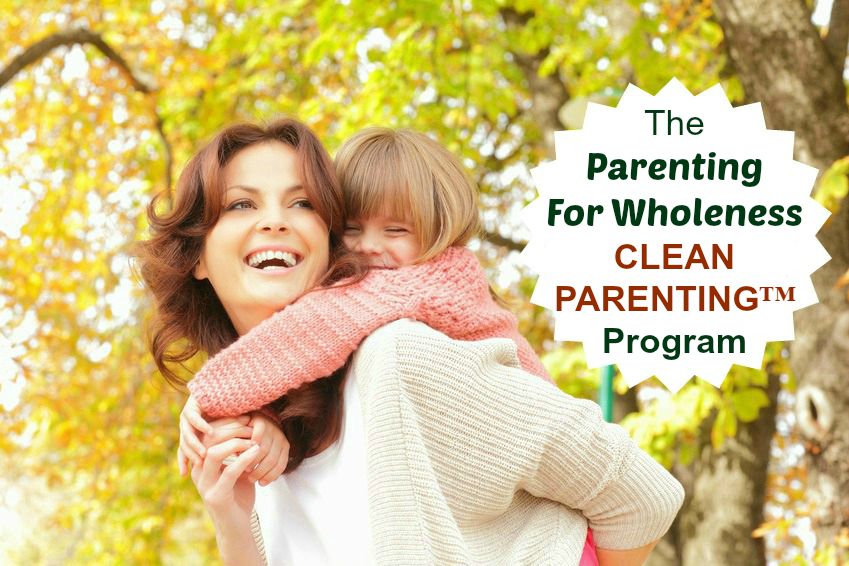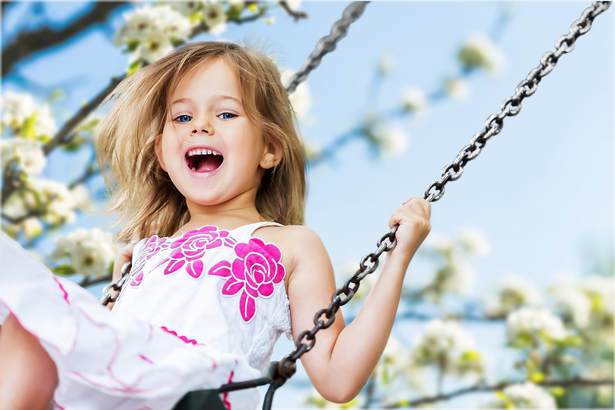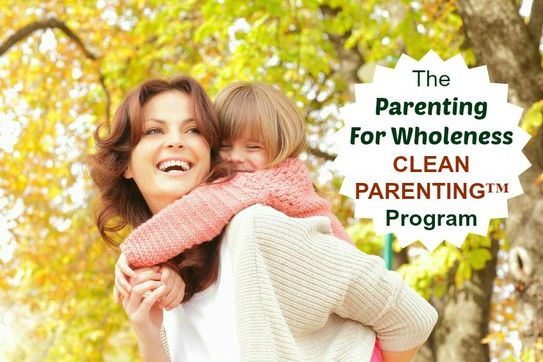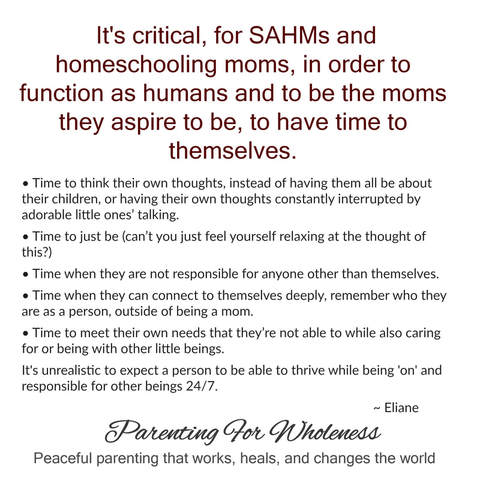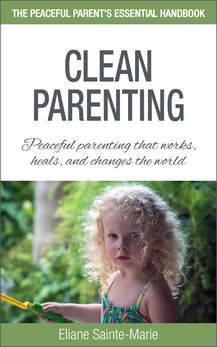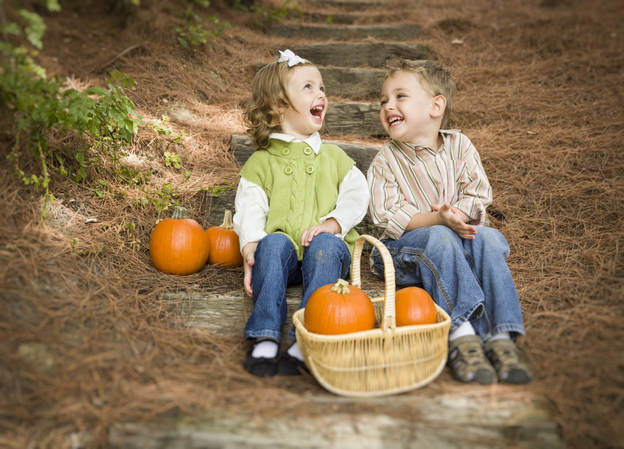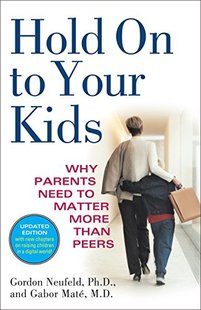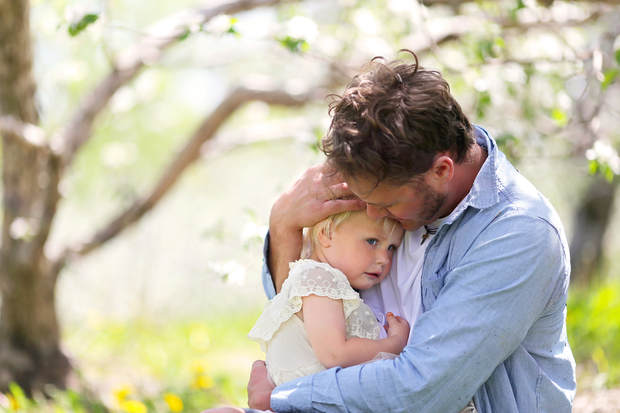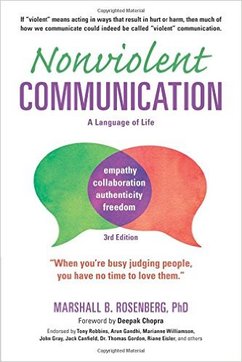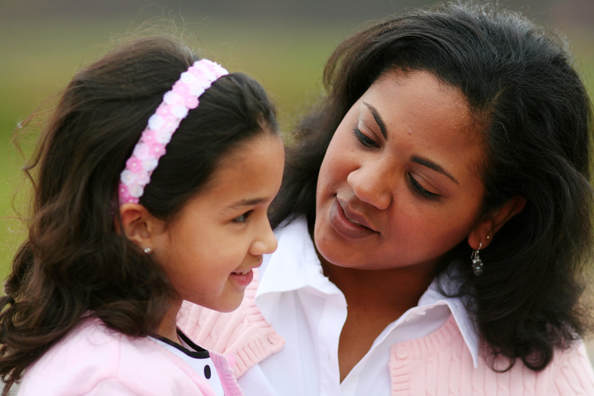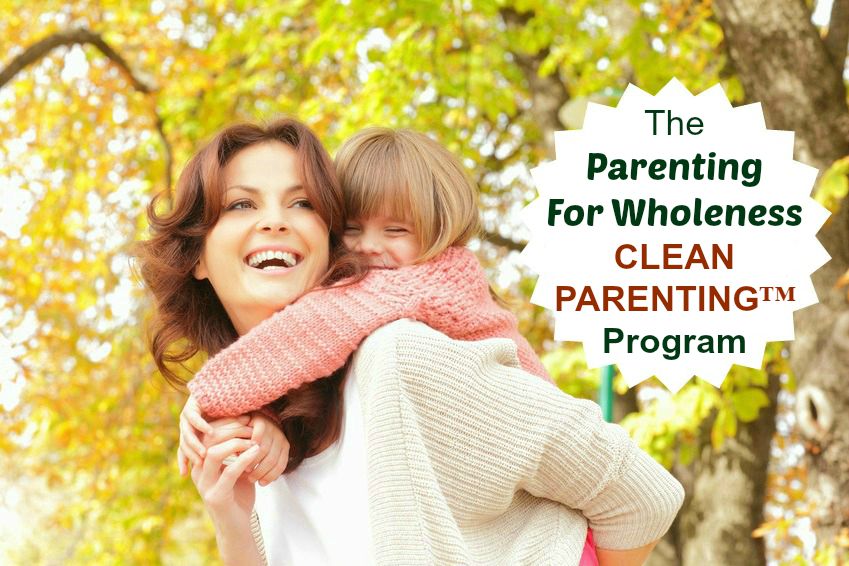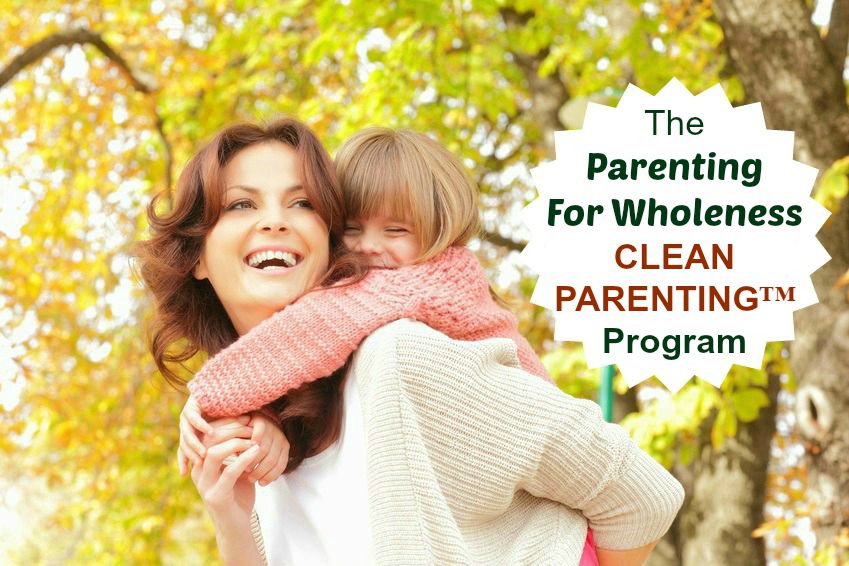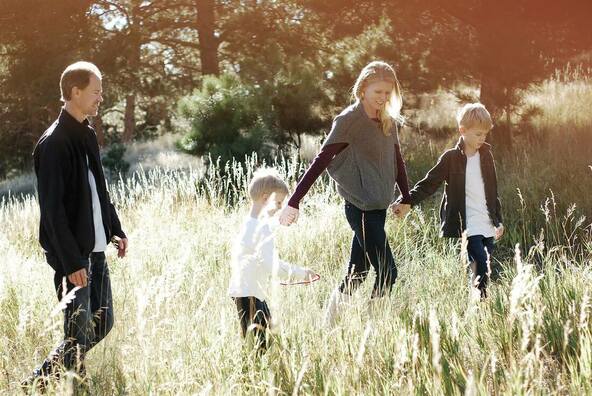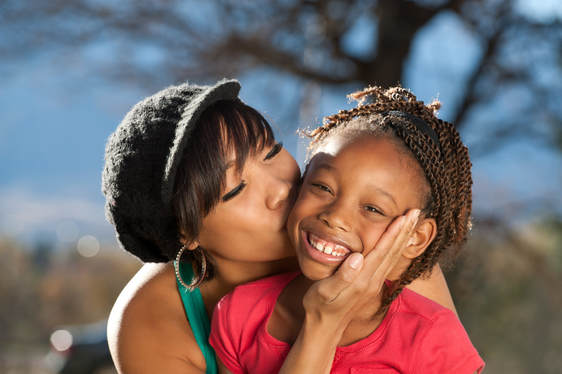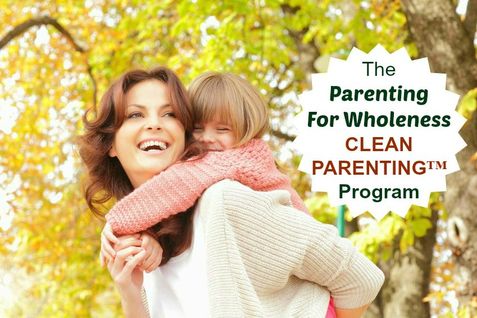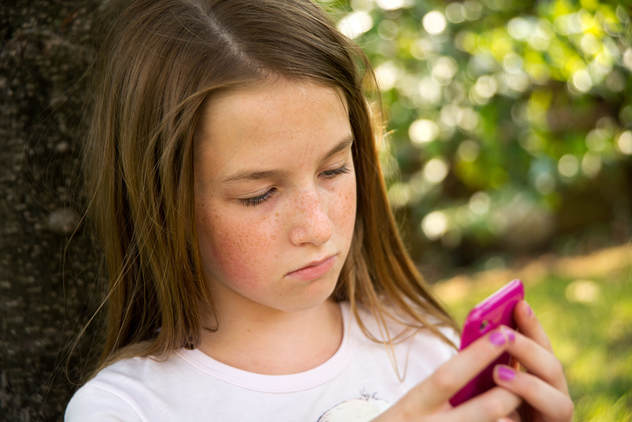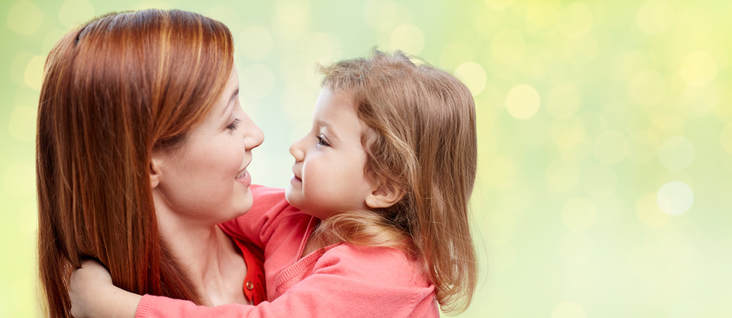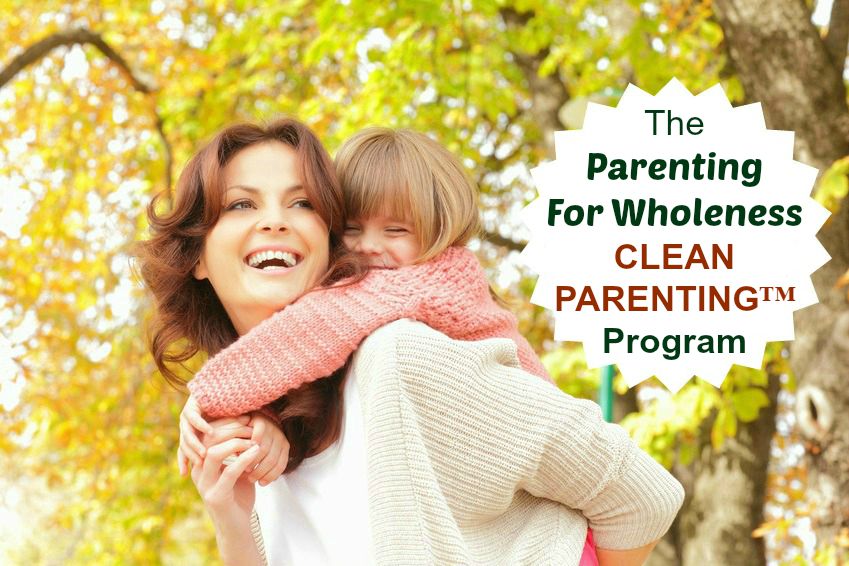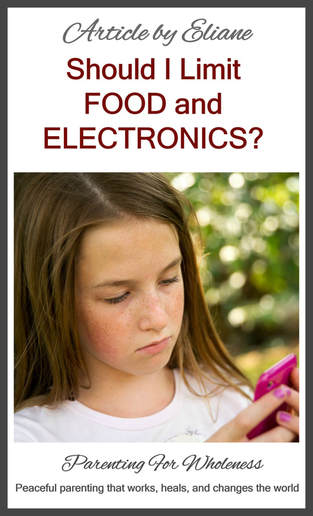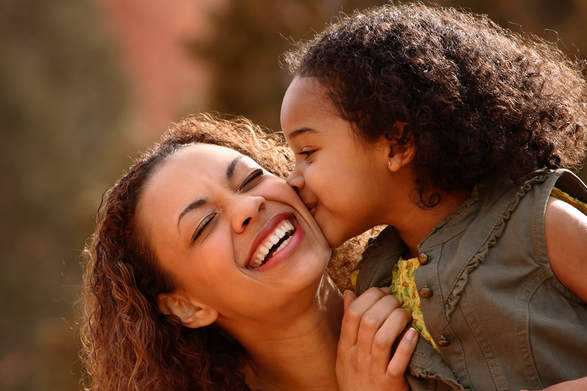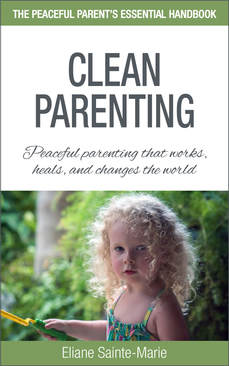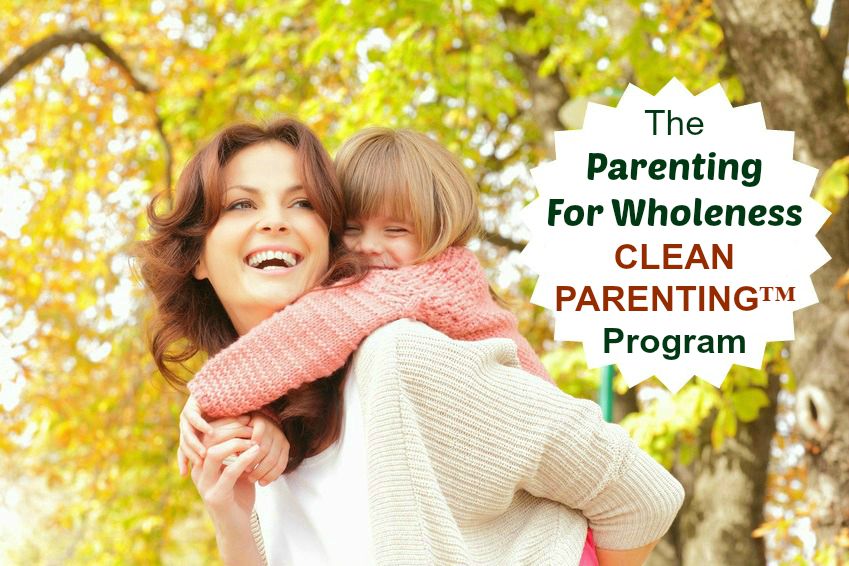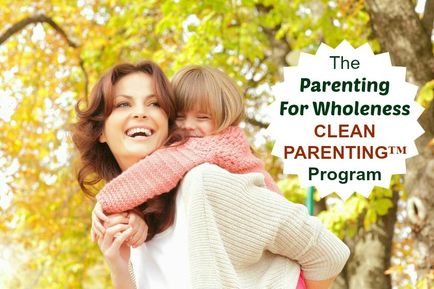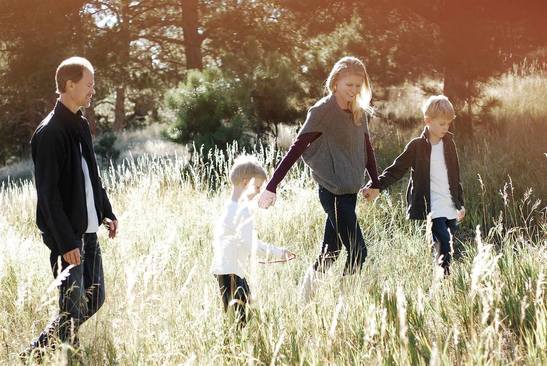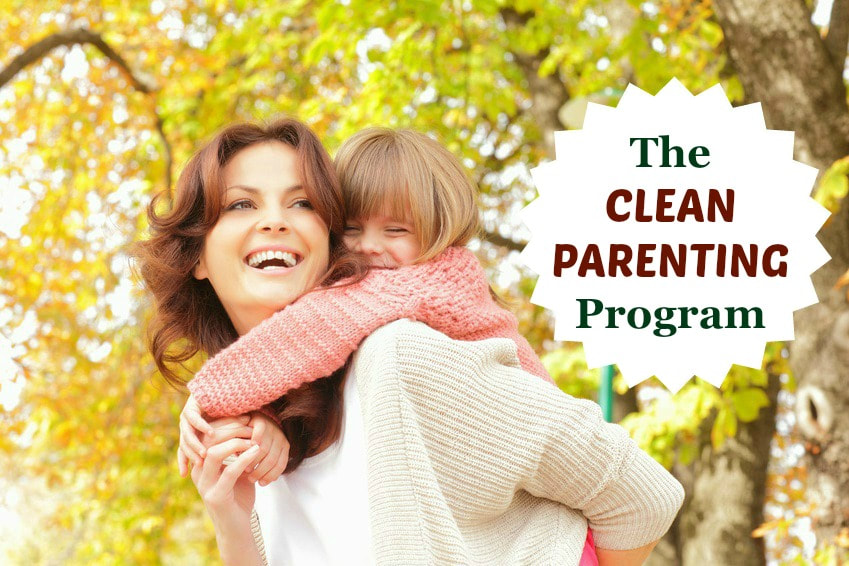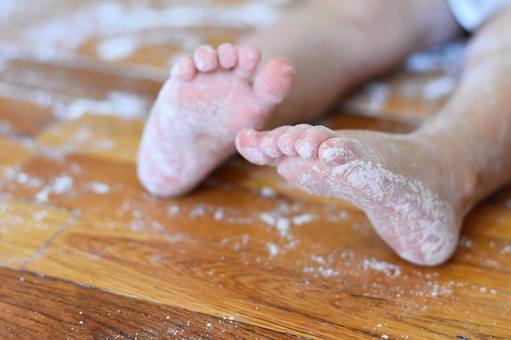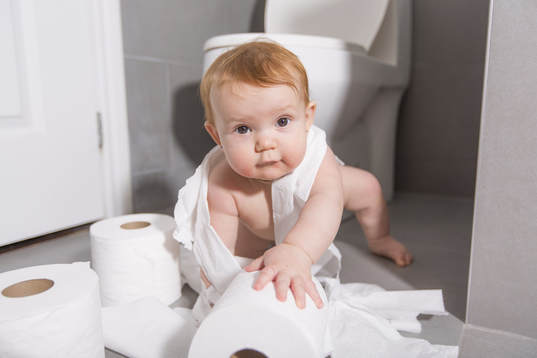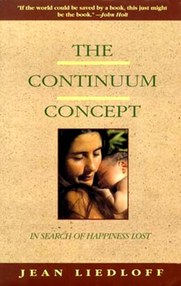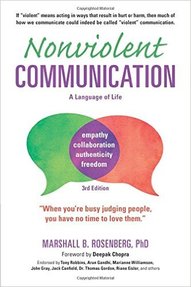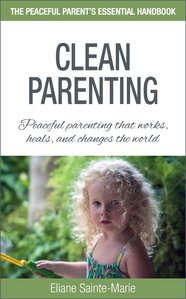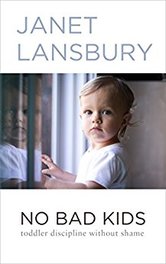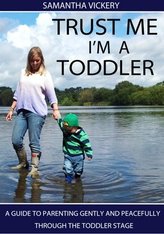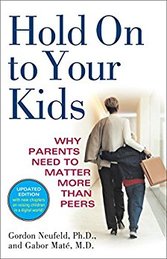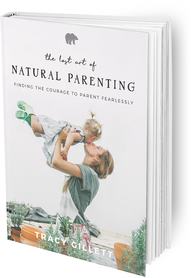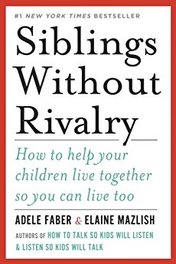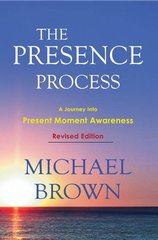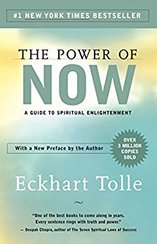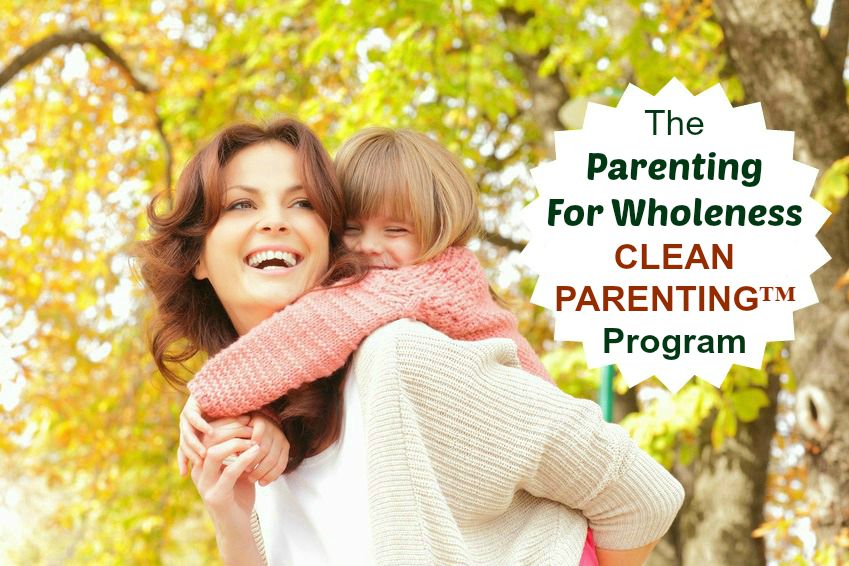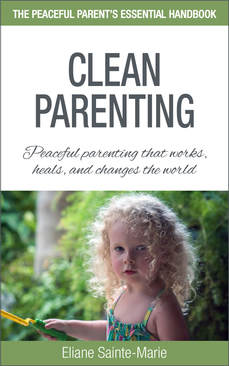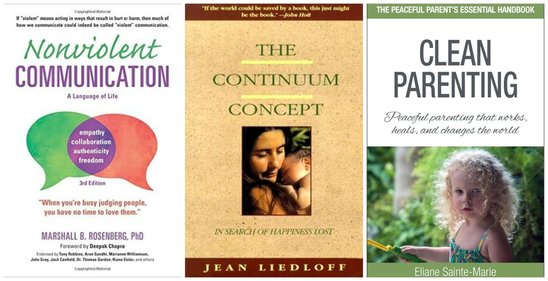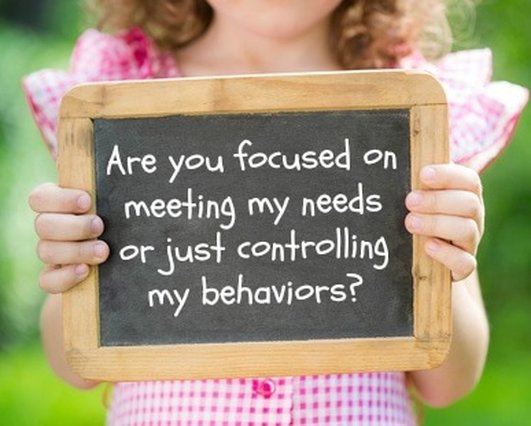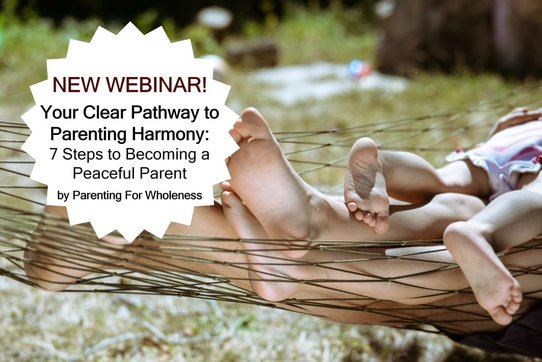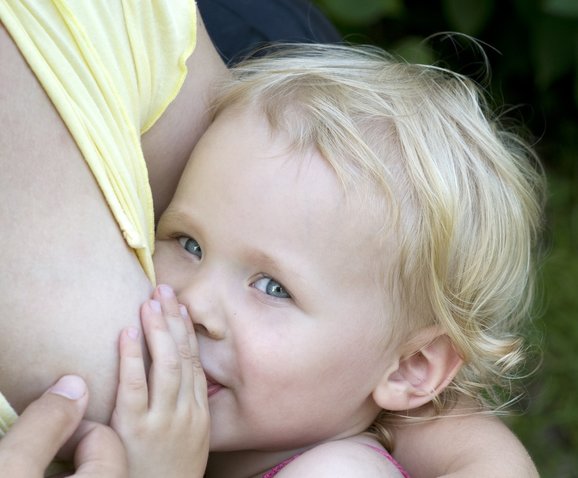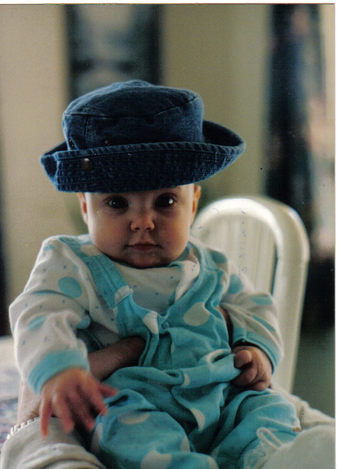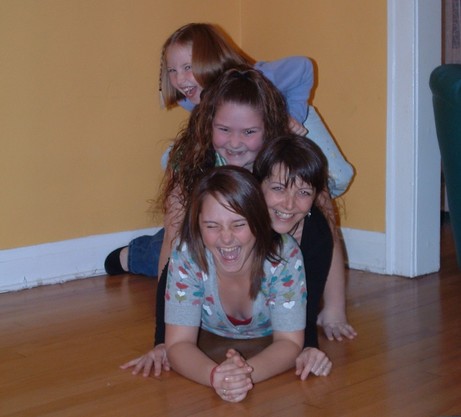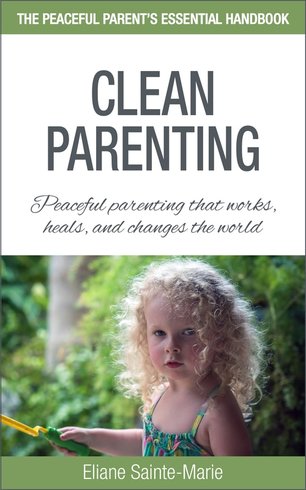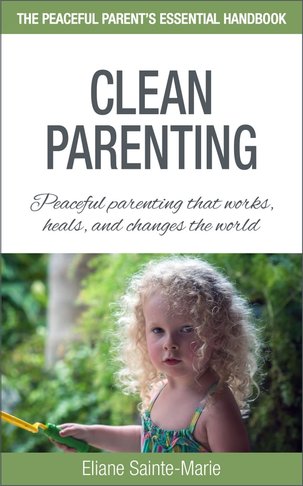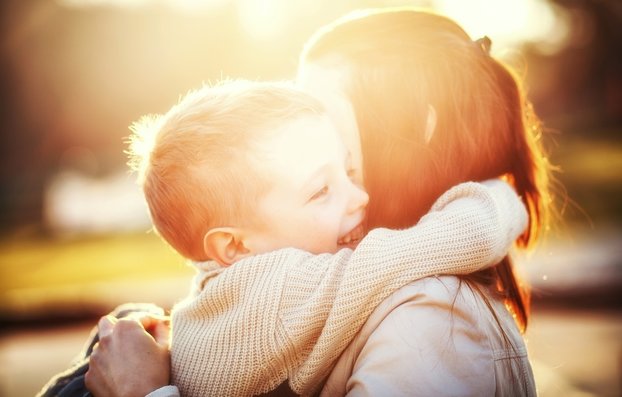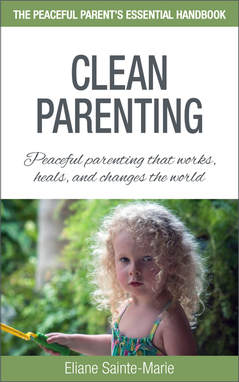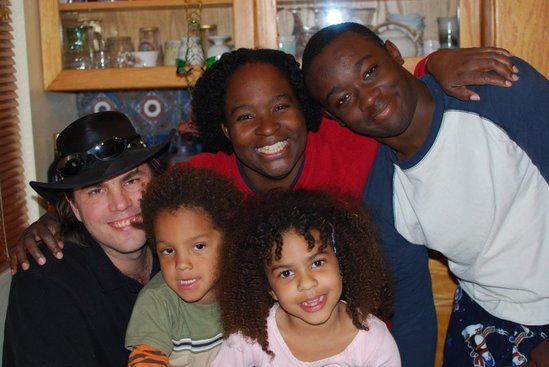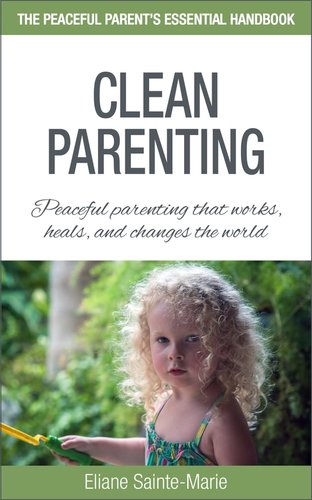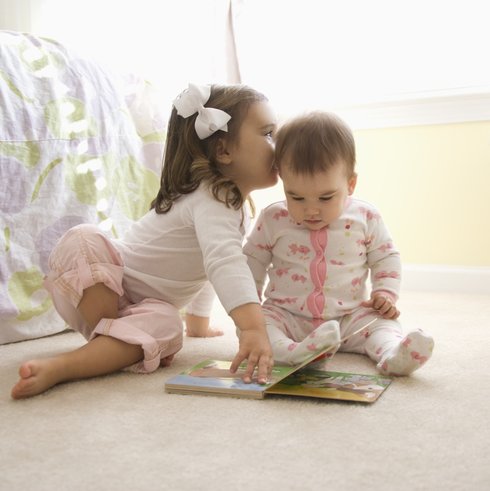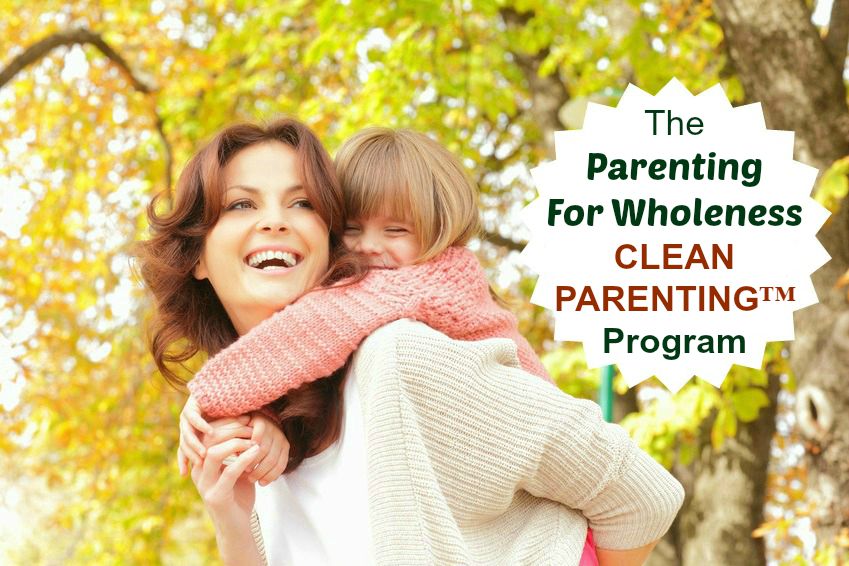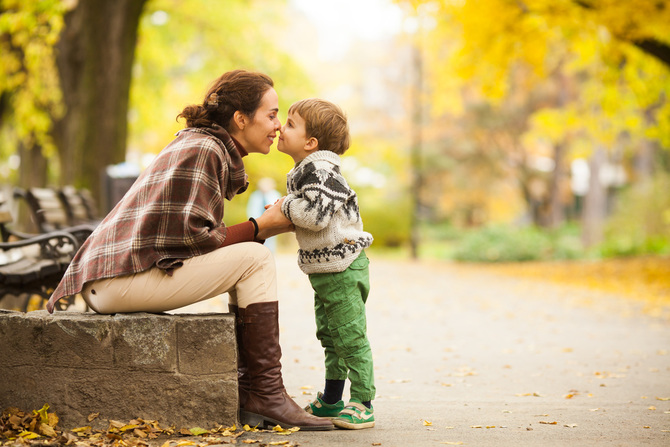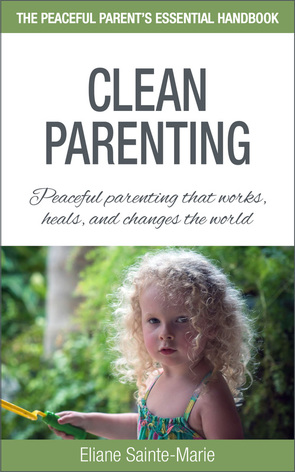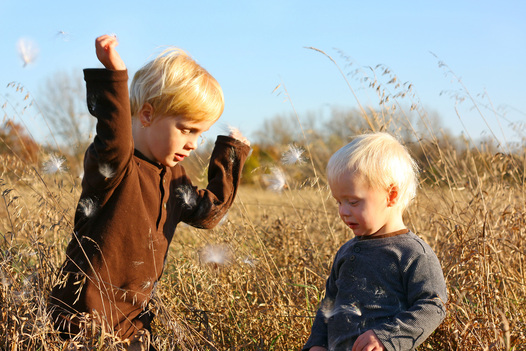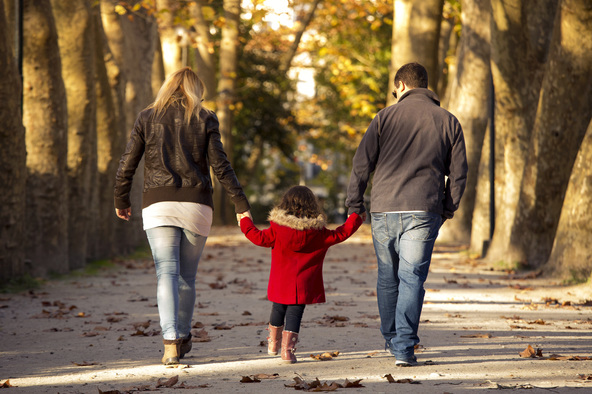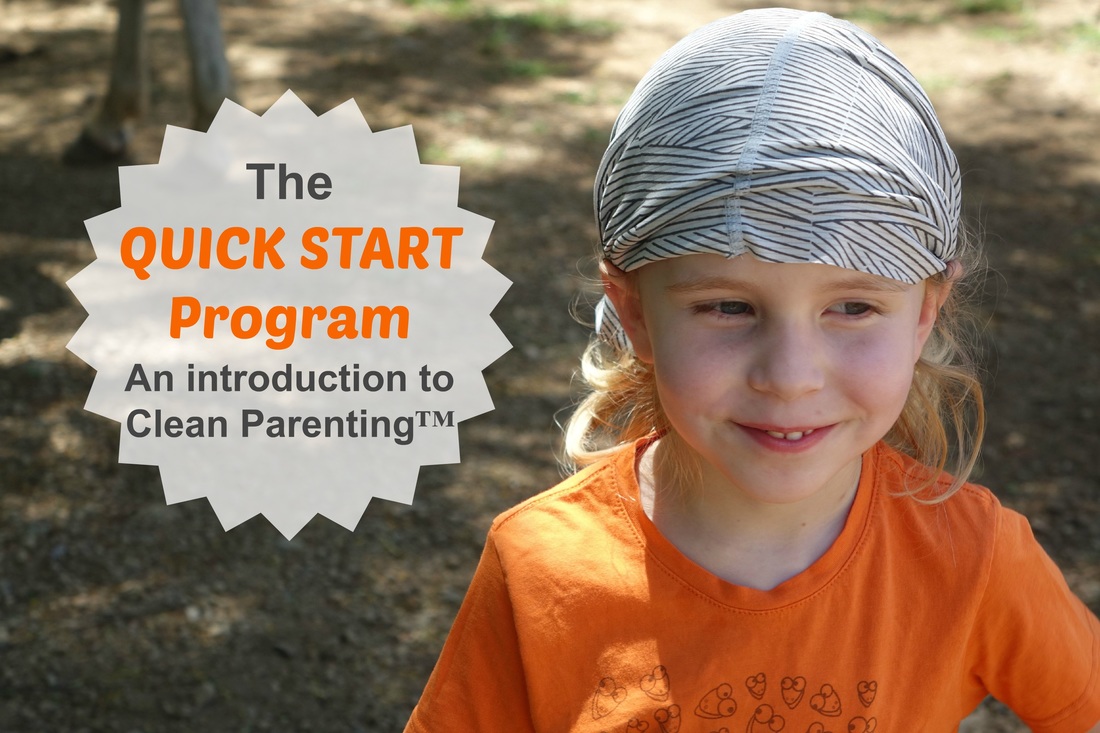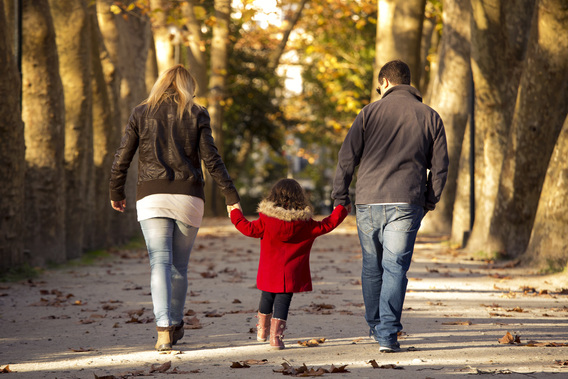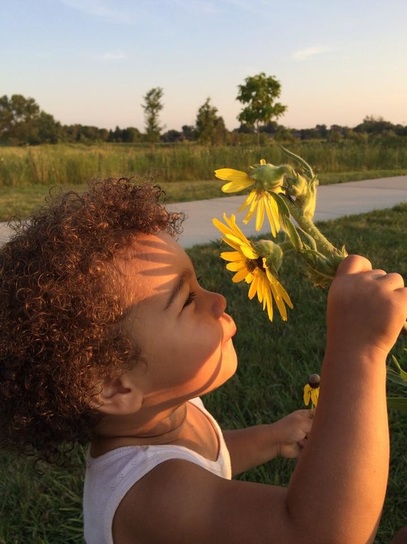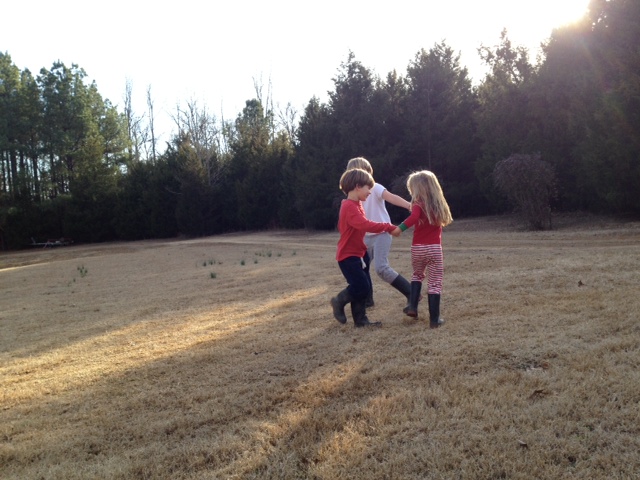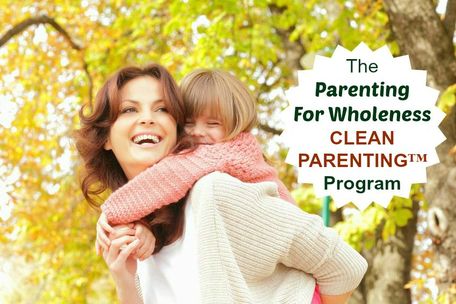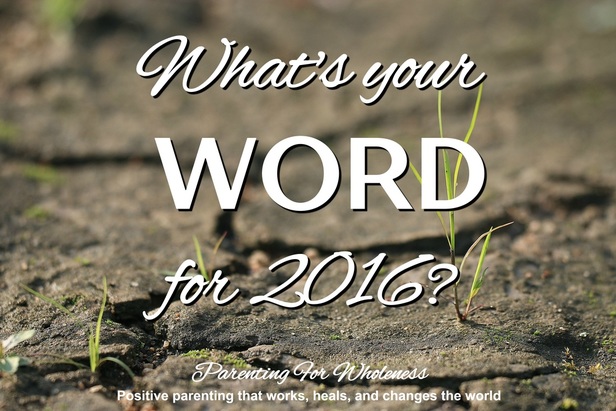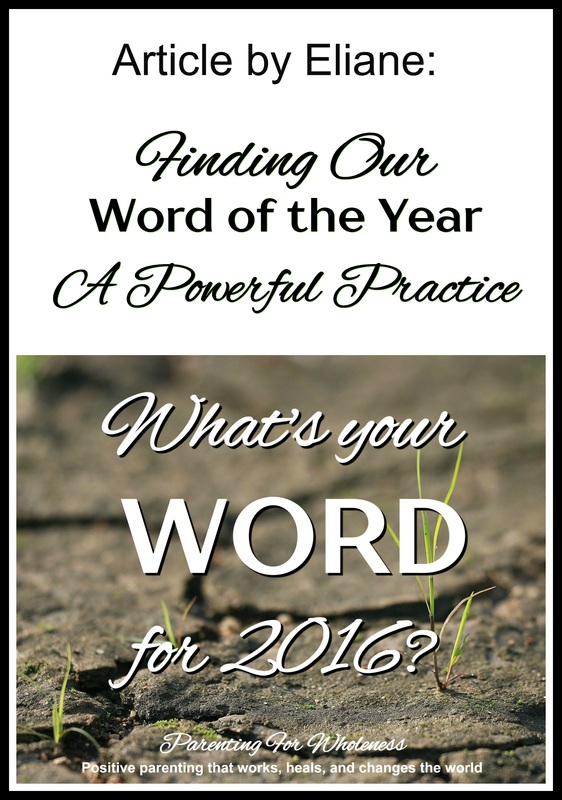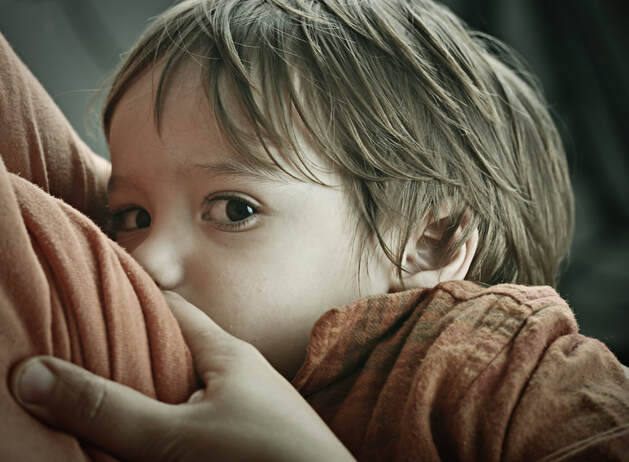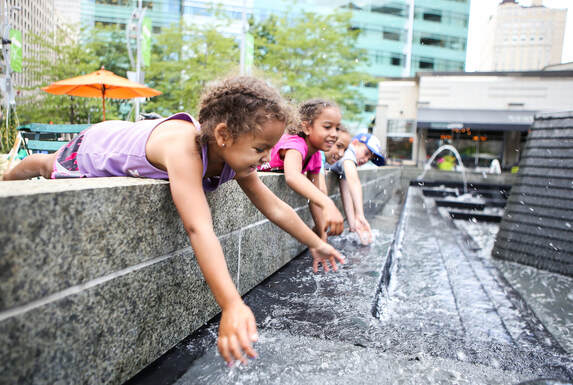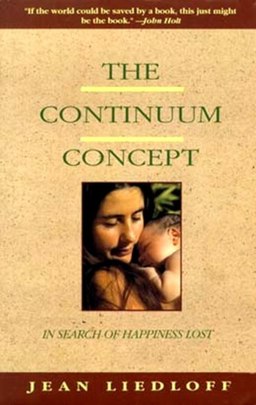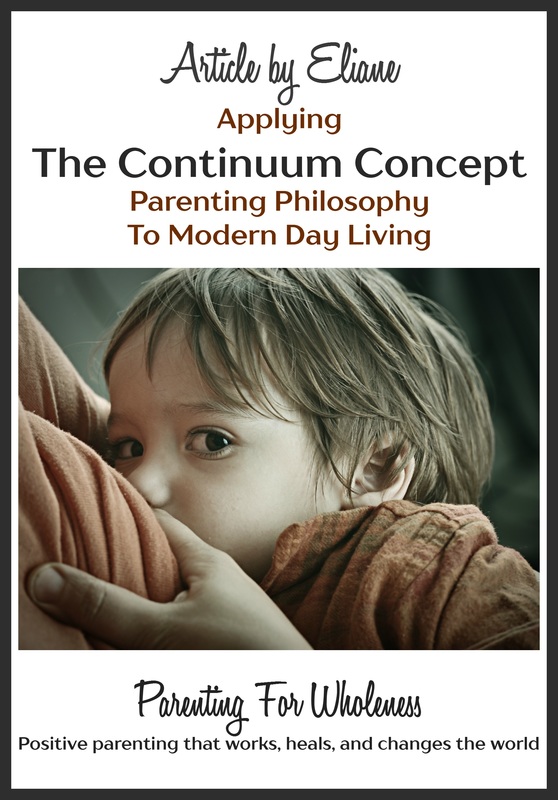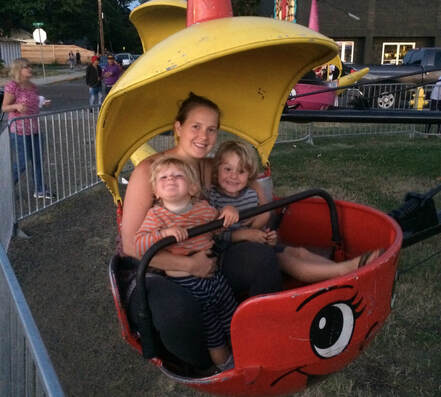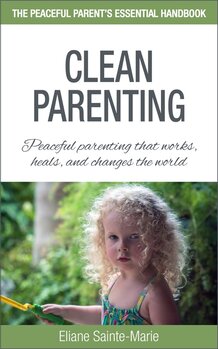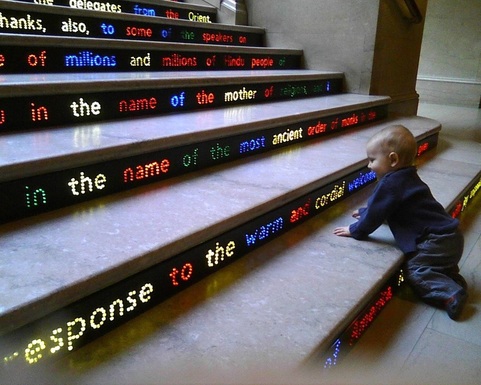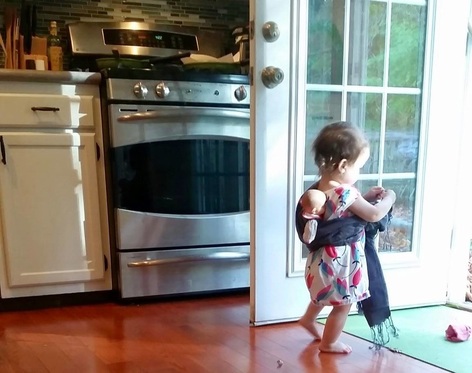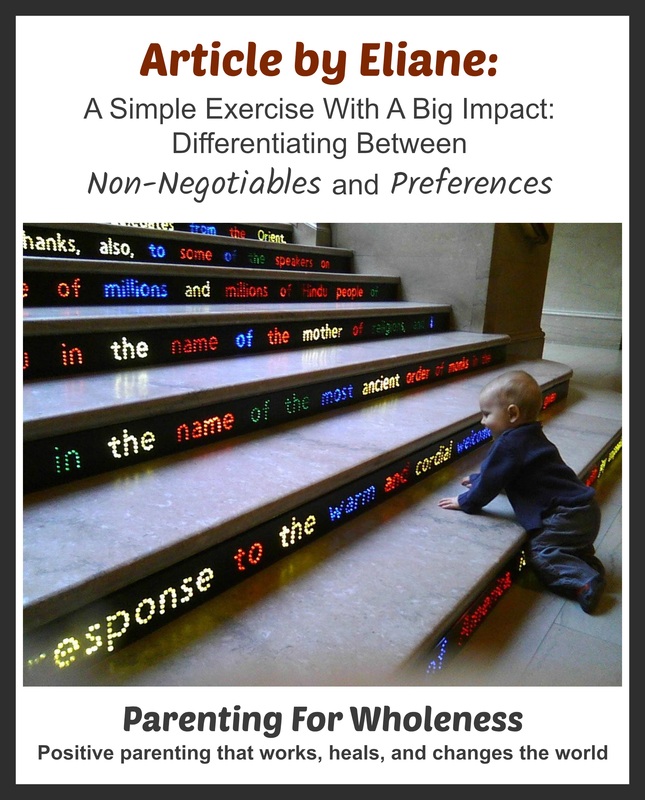|
I want to address a special group of moms today, women who are very dear to my heart. Through my work, I get to connect with many new moms who at this point have only one child, a young one, 2 years old or younger. These moms are deeply committed to peaceful parenting. What they see most parents do doesn’t feel right to them, and they’re looking for a different way. They’re doing their work, reading, joining groups of like-minded moms, learning to trust (and at times even uncover) their instincts. And yet often, they lose it with their beloved children. They find themselves screaming at them, sometimes even hitting them. Doing things that seem unimaginable to any peaceful person who has not experienced living with a child, especially attachment parented and being a stay-at-home mom, being with that child every moment of every day, 24/7, month after month after month. You know what, you wonderful mamas? It takes TIME to find your way with parenting. It takes TIME to acclimate to being responsible for another human being. It takes TIME to acclimate to never being alone, to ‘you’ now meaning you and your child. It takes TIME to changes your responses when your shit takes over, when you’re triggered or your defenses are down for any reason. Though many see me as a role model when it comes to mothering, I’ve done many of those unimaginable things you judge yourself for, to my oldest daughter Cassandra, when she was young. (You can read about some of those here.) It was freakin’ hard finding my way to being the mom I wanted to be! Re-wiring my responses which were initially the ones my parents used with me. Learning to parent effectively. Dissolving my incredible drive to control her. Eliminating the part of me that JUST WANTED HER TO OBEY! That just wanted her to do what *I* learned to do as a child: mold myself into someone who wouldn’t cause my parents trouble, and who would certainly never embarrass them in public. It’s not to say that parents of older children or multiple children don’t also lose it, but for many there’s a certain ease that ends up developing. And we’re also much less likely targets for all the unsolicited advice and criticisms that all too often gets rudely lavished on new moms. Those first years are really hard. Just go easy on yourself mama. Trust your instincts that guide you to parent peacefully. Get the support you need to learn how to do it if it doesn’t come easily. (I’ve created 2 programs that are highly effective in taking peaceful parenting from theory to day-to-day reality in your family.) Get LOTS of support from like-minded people. Ideally in person. I highly encourage you to commit yourself to creating a community. It may take months or years to create, but it is possible. And meanwhile, find online communities that will support you. Where you can be fully yourself. Where you can share each thing you do that horrifies you, be held in love and acceptance, be reminded that you’re normal and only doing this because your own needs are unmet, and be supported in doing your work. And trust the process. If you’re committed to it and get the support you need, you WILL get to an ever better place in your parenting. Reach what my goals are for you: to experience the ease and harmony of family homeostasis, to live and parent from a place of presence and connection to your own guidance, to trust yourself. And know that your children are likely much more resilient than you think. THE most important thing you can do for them (besides of course providing them food and shelter from the elements) is supporting them in developing a healthy sense of self. Everything else comes a far second. The way you treat them, the majority of the time, is what creates that sense of self. Healing the occasional traumatic experiences you inflict on them is really easy (once you know how) when they have a good sense of self, and a good and safe connection with their mama. And this is what you’re working toward every day, and likely doing a much more awesome job at than you give yourself credit for. Keep putting in the work and reaching for support when you need it. Though there's so much value put in self-sufficiency in our society, knowing our limits and when to ask for help are a sign of true maturity. And if you resonate with my writing and would like my support in connecting to your inner guidance and living the ideal I wrote about (you can read many testimonials of moms like you who have reached it here,) I'd LOVE to work with you! See below for info on my program, and email me if you're interested in chatting about if it'd be right for you. I hope I've inspired you to be a whole lot gentler on yourself, dear mama, to hold on to your vision of what's possible, and to get the support you need, whatever that looks for you. ♥ Lots of love, For a discussion of 4 key principles I work with moms on integrating to achieve family homeostasis, request my FREE report, The Almost Magical Formula For Surprising Ease and Harmony in Your Family While Fully Honoring Your Children’s Spirits.
CLEAN PARENTING™ PROGRAM
Would you love to be fully connected to your inner guidance and know what you're doing, moment to moment? Would you love to create a life for yourself where yourself as well as your children are thriving? Where all your needs are met? Where you are finally consistently the mom you want to be for your children, and feel confident that your children will grow up to be emotionally healthy and whole?
Related articles:
2 Comments
By Eliane Sainte-Marie, founder Parenting For Wholeness About a year ago, I was exposed to a concept new to me, which has been a huge help in my work with families. In helping moms:
As the title of this article suggests, this valuable concept is our WINDOW OF TOLERANCE. Which is beautifully explained in the wonderful video created by Beacon House, which I've embedded below for your easy access. But one thing I want you to be aware of, before you watch it, is that though the video only speaks to children's Window of Tolerance, EVERYTHING COVERED IN IT APPLIES TO US ADULTS AS WELL!! In order for a family to thrive, to attain and live in the state of homeostasis which I so want for all of my followers, every family member needs support in primarily living in and easily coming back into their Window of Tolerance. So watch this important video and if it resonates with you, read below for some questions and guidance in putting its wisdom into practice in your family. Doesn't this video make it crystal clear that when your child has some kind of meltdown, or is uncooperative, they shouldn't be punished nor enticed to change their behavior through a reward, but instead need love and care to bring them back within their Window of Tolerance?!? And can you see how that's true for yourself as well? To help you integrate this wisdom into how you function as a family, here are a 5 important questions you can ask, for each of children as well as for yourself:
I also want to mention here that, if like myself and many of the moms I work with, you're highly sensitive (an HSP) and/or had a traumatic childhood or one in which many of your needs went unmet, it's possible that you've rarely even been in your Window of Tolerance. That's you've only had glimpses of or lived very short periods within your WOT, and barely have a sense of what that could feel like. If that's the case for you, then your primary work, in order to consistently be the mom you want to be to your children, is to figure out how to better meet your own needs, heal your wounds that constantly get triggered and bump you out of your Window of Tolerance, and get the support you need. I hope that, like myself and many of my clients, you've found the concept of Window of Tolerance helpful to your life. For the next few days, I'd encourage you to focus on looking at your children and yourself through the lens of your Window of Tolerance. How differently do things look to you from that perspective..? Lots of love, If this article deeply resonates with you and you'd like some help in creating a life where both you and your children live within your Windows of Tolerance, I'd love to work with you! This is what my Clean Parenting program is designed to do, and you can read many testimonials of moms whose lives have been transformed through doing this program here. If you join me in that life changing journey, we'll dig deep into all the questions I posted above and many more, and figure out together how to get you to a place where you all increasing live within your WOT's, and achieve what I call family homeostasis. Email me at [email protected] if you're interested and would like to chat with me about if this program is right for you. Related articles:
(NB: I’m not intimating that working moms don’t also need time alone, but the purpose of this article is to address the unique challenges of being ‘on’ and with children, 24/7.) Now that I’m an empty-nester and have all the same and space I need to focus on myself, after 24 years of living with children, I have a whole new vantage point on what it’s like to be responsible for and with children 24/7, week after week, month after month, year after year. And I have a huge amount of compassion for the young mom I was who was home with her 3 children, co-slept, homeschooled, lived in a different country from her family, and was therefore with her children 24/7, except for an occasional evening La Leche League meeting when I left the older children with their dad. The young mom who didn’t realize that she mattered too. I work with many stay-at-home and homeschooling moms, and I see now how vital it is for them, in order to function as humans, to have time to themselves.
Not honoring their own needs is one of the biggest mistakes I observe in peaceful, attachment, Continuum Concept parenting and homescholing moms. Though they’re acutely aware of how important it is for their children’s needs to be met and single-mindedly focused on making sure that they are, they ignore the fact that they are humans too and therefore also have needs. And that it’s critical for themselves, in order to be the best possible mom to their beloved children, in order to have a chance of thriving as a family, and just because they deserve it like all humans, to have their needs met too. If you’re familiar with my work, you know that my goal is for families to live what I call family homeostasis. And this goal is impossible to attain if moms don’t commit to making sure that their own needs are met, as well as their children’s. CAVEAT: I must admit that I’m a bit reluctant to publish this article. And I think other like-minded parenting authors might avoid writing about this topic for the same reason as me: because our society often completely ignores children’s needs, to disastrous consequences to those poor beings, in order to meet the parents’ needs. And we’re afraid that sharing this info might just be additional motivation for some parents to separate from their children more than is healthy for them, and ignore their needs even more. But I’ve come to realize that this message needs to be shared, for the benefit of the dedicated and attuned stay-at-home moms who are floundering or barely coping for lack of self-care, so I’m taking that risk. The advice in this article assumes, as I make sure to mention a few times, that children are ready to separate from mom, and that they are left in the care of someone who THE CHILDREN feel completely safe and comfortable with, and, if they’re young (babies, toddlers, as well as older children if they need it) well bonded to. It’s important to understand that what’s key here is the child GENUINELY FEELING safe, comfortable and bonded, it’s not about the parent knowing that the child is safe and will be well cared for, or thinking that the child ‘should be’ fine with that person. WHAT I RECOMMEND: When I started running my Clean Parenting program 4 years ago, when I still had 2 daughters living at home, I recommended that all moms whose children are ready to separate have one evening or one chunk of time on weekends, weekly, where dad (or someone else if dad’s not around or available) took the children. THIS felt critical, even though I didn’t know it when my children were little, and therefore didn’t practice it. But 4 years later, having been living alone for a whole year, this seems ridiculous. Ridiculously not enough. Especially if you are an introvert or an HSP (highly sensitive person!) So in my last Clean Parenting group, I came up with what feels like a minimum, for stay-at-home-moms, and especially homeschooling moms (which means many more years at home with children) to not only survive or be able to cope, but have a chance to also thrive and to be the best possible moms they can be for their children. This is what I now recommend (again, once their children are okay being without them and there’s access to the right kind of caregivers.)
If you have multiple children and your youngest isn’t yet ready to separate, assuming it is helpful to you, you can follow that plan with your older ones. I don’t know about you, but for me, by the time I had 3 children, an evening out with just the baby/toddler did feel like a vacation. If your reaction reading what I suggest is that it feels impossible, or brings up an intense negative feeling or disbelief that you deserve that time to yourself, then you might want to slowly build up to it. Start with a night off every 2 weeks or 2 hours of support on a weekday once a week. Then after a couple of months, graduate to a night off every week or 4 hours of daytime support during the week. Then add in some weekend time, etc. I’d also suggest you do some inner work on the feelings and beliefs that this idea brought up, as you’ll likely never be able to thrive as a person until you can fully honor and commit to meeting your own needs. IDEAS FOR GETTING SUPPORT: There’s a common reaction I get when I share this advice in my Clean Parenting groups, after I’ve done some work with the moms on realizing the importance, for themselves as well as for their children, of focusing on meeting their own needs. And it’s that they don’t have the right people in their lives to care for their children so they can get time off. Here are some of the ideas I offer them:
For some guidance in parenting in a way that supports families in fully thriving, request my FREE report: "The Almost Magical Formula For Surprising Ease and Harmony in Your Family While Fully Honoring Your Children’s Spirits" CONCLUSION: If you are a SAHM, are genuinely thriving and don’t feel the need for free time, I’m thrilled for you! (And envious too. Part of me wishes I could have been THAT mom, but I know now that given my specific needs, and being an HSP, this was not realistic for me, and therefore unkind to myself to wish for.) But if you are loving spending all your time with your children and are able to fully meet your needs in this way, then please disregard this article. But so far I’ve not met one of those moms (that I know of.) Most of the moms I meet completely ignore their own needs. And the ones who either come from emotionally healthy families and know their needs matter or have done a lot of healing work to get to the place of valuing their needs STILL don’t take seriously their need for alone time, or don’t know how to go about getting it met. Can you imagine what it would feel like to have all the alone time I recommend above? What a different person you might even be? How much more patient and excited to be with your children you might be? Isn’t that worth working toward? I really hope I’ve inspired you to take your needs more seriously, whatever they might be. And that if you’re resonating with this article, you’ll take steps toward creating some space for yourself. It might take months or even years for you to build the right relationships, find the right people, maybe do the needed healing work, that will allow you to have the needed support and conditions to have the time alone you crave. But what’s important is that you keep clear on your goal and keep taking steps. Gradual, steady progress is what will eventually get you there. What I recommend in this article might seem extreme, and I know it would have been hard to convince me to follow it, and that I deserved it.
Related articles:
CLEAN PARENTING™ PROGRAM Would you love to create a life for yourself where yourself as well as your children are thriving? Where all your needs are met? Where you are finally consistently the mom you want to be for your children, and feel confident that your children will grow up to be emotionally healthy and whole?
In my work with moms, I meet a lot of very well intentioned ones who purposely avoid saying ‘no’ to their children at all costs. Or who, though they do understand it’s important to set boundaries in relationships and that it doesn’t serve children well to acquiesce to all their requests, still struggle to do so. Their main reasons are usually one or more of these:
In my experience, both personal and professional, there are many issues with avoiding saying 'no' to children at all costs. I believe the two most important things for people to thrive, during childhood and adulthood, are A ROCK SOLID SENSE OF SELF and A FEELING OF TRUE SAFETY, both in the world and within their own skin. And neither avoiding disappointment nor providing full autonomy to children leads to them. (I’m about to publish an important article on that sense of safety, so to find out more about it and make sure not to miss it, make sure you’re on my email list. Click here to join and receive my FREE 8 page report, The Almost Magical Formula For Surprising Ease and Harmony in Your Family While Fully Honoring Your Children’s Spirits.) I also believe there are key abilities children need to develop in order to thrive and succeed as adults: they need to know and be able to honor their own voices and they need the ability to set boundaries. And I don't see how children can fully develop those qualities if they’re not clearly modeled to them. They also need to be able to accept and deal with disappointment. No one can ever always get what they want, and resiliency in the face of disappointment, as well as the ability to postpone satisfaction are key to thriving as an adult. One important concept that I teach parents is what Gordon Neufeld coined as ‘hitting the wall of futility’ (which he talks about at length in his book Hold On To Your Kids, one of the most important parenting books, in my opinion.) This is the moment when we see the futility of continuing to try to attain what we want, to convince someone of something, to stay in our anger or frustrated feelings, and move on to accepting that we’re not going to get what we want, and consequently let ourselves feel the sadness that’s inherent in that acceptance, and mourn that our desire won’t be met. This mourning is what brings us back to center, to peace, to wholeness (click here for an article on the importance of mourning in parenting.) This is a critical skill in becoming a mature adult, and one that few unfortunately master. And it can only develop through parents being really clear with their children, not being afraid to unequivocally ‘tell it like is.’ Like saying ‘I know you really want me to buy this for you, honey, but I won’t,’ or ‘I know you really want to play with the truck right now, but Johnny has it,’ or ‘I know you really want me to take you to the playground right now, but I’m not feeling up for it.’ And then of course empathizing with them and holding space while they process the disappointment. As parents, it is our responsibility to make sure that our children’s NEEDS are met. But much too often, parents lose track of the difference between wants and needs. They, consciously or not, feel they have to fulfill all their children’s wants, believe they are not meeting their children needs if they don’t fulfill a want. Nonviolent Communication (a book I consider essential for all parents, and the only book I request that all parents who take my Clean Parenting Program read) teaches us about the distinction between needs and strategies to meet those needs. The value of knowing this distinction is that we can identify the underlying needs beneath the children’s wants, and make sure those needs are met even if we can’t, in a way that keeps us and our family in a state of balance, fulfill their want. Here are some examples that illustrate that distinction:
I also see a key to thriving and succeeding as an adult, both professionally and in relationships, is being able to interact with others in a respectful, kind, compassionate, and assertive way. It’s also important to be skilled in finding ways of meeting multiple people’s needs, through discussions, debates and compromises, to create families and organizations where everyone can thrive. But how can children learn to treat people with respect and learn to live in society, in a way that multiple people’s needs can be met, if their parents are not giving them accurate and honest feedback, and providing the loving and safe setting in which to first learn those skills? Also, how can the parents be the best possible parents to their children, if they are ignoring and suppressing their own needs, and are just at the service of children, refusing to set any boundaries on issues that impact them? One of the most important work I do with moms is help them figure out and honor their own needs, and only through doing so can they finally parent in alignment with their values, because their cups are finally full, because they’re finally functioning within their window of tolerance. Anything that encourages parents to ignore their feelings and needs ultimately ends up backfiring on the children. But what most stands out to me, because of what I’ve observed in the families I work with, is the issue of SAFETY. I think of the massive shifts that happen in the children of moms I work with, who previously avoided setting boundaries and saying no at any cost, which are almost palpable. Once they put more of themselves into the relationship, and own their role as a leader. Many children, almost overnight, become SO MUCH HAPPIER! They become calmer, more grounded, way more cooperative, because they finally feel right. They feel fully safe. Though they of course are full human beings, they are new to this world and unable to meet their own needs, and it feels good, it truly makes them feel safe, when they know someone knows what’s going on and what’s needed, and matter of factly makes it happen. When they feel someone’s in charge, has things figured out, and will take care of them. Another reason parents setting boundaries where they feel true makes children feel right and safe is because there’s congruence between what the children pick up on and what parents say. It doesn’t feel good to children if mom says yes to helping them with something, but they can also tell she either doesn’t really want to, or doing so is taking a toll on her. Feeling congruence between what they feel and what they’re told and witness in their lives makes them feel at peace, that they are on solid ground. I see amazing results in my Clean Parenting™ program, beyond what even seems possible, in just 2 months (you can read the program page for loads of testimonies.) And when I ask moms, at the end of it, what are the most important things they learned from the program, the vast majority say that it’s focusing on meeting their own needs. And that the most valuable skills they’ve learned are how to tune into and honor their own voice, and step up as a clear benevolent leader to their children. Both of which have nothing to do with avoiding disappointments for children and saying yes at all times. Yes, it is critically important to have realistic expectations of children, to set boundaries responsibly and respectfully and to support our children in their difficult experiences. But avoiding saying 'no' to them at all costs benefits no one. Lots of love,
I had a huge aha! moment yesterday when hearing a health coach talk about the goal of her work being to bring us back to HOMEOSTASIS. Because I realized that's what I do for families!!!! And achieving this state is my heartfelt wish for all families! I just didn't yet have the words for it (thank you so much Jeanne Rubin!) In my writing and in my programs, I repeat over and over that:
All of this is to support you in reaching what I'm today starting to call FAMILY HOMEOSTASIS. Moms consistently reach it through my program, and they know the MOMENT they achieve it. Because it's almost palpable. There's a quality of ease, flow, connection and presence to it that can't be put into words. (I've written about it at length in my recent article Presence and Authenticity with Children, published in Heartfulness Magazine.) Often times, they doubt it when they first experience it, in part because it feels too good to be true, and in part because it often disappears once they start focusing on it, and getting back into their heads instead of remaining in their hearts and in their bodies. But as they progress through the program, and firmly integrate all the principles I teach, that state becomes more and more common in their lives. It stabilizes and integrates, and because all I teach is designed to connect you to your own guidance and your own answers, for many participants, it only deepens after the program ends, instead of receding. (Some do need extra support for this state to become permanent, either on the parenting or on the emotional healing fronts, which I offer as well.) This doesn't mean that everything is always perfect in the families who have reached homeostasis. Not at all. Bad days happen. Negative behaviors happen. Parents lose it. But it no longer shakes the mom's foundation. Because she knows WHAT went wrong, and WHY. And she knows how to address it. She knows that perfection is an impossible goal and that she's as deserving of compassion and understanding as her children. That she's also human. She knows how to make amends and how to support her children in fully processing the painful experience. And she trusts in the solidity of her children's sense of self and in their relationship, and therefore knows that whatever happened won't permanently affect them. My beloved clean parenting and healing coach trainee, Kristen Phillips, wrote the following after reading a draft of this article: "Homeostasis is such a comforting concept for me to keep in mind throughout my day with my two sons. Realizing that homeostasis is the goal, not perfection, takes the pressure off. It makes me feel like ups and downs are to be expected, not to be feared or resisted. I used to stress about situations that happened that didn’t go they way I’d hoped, or if things felt off with one of my boys. But now, I just remind myself that the goal is homeostasis, and that I know how to get us back there. I just take some time to sink into my body and empathize with myself and my boys. It's easy to see where things are off, what needs aren’t being met. Life is a constant journey of changes and fine tuning, and now I feel comfortable rolling with that instead of pressuring myself to keep everything perfect in this imperfect world." Achieving this state is the reason I say I didn't feel like I was parenting my children, but that we were living our lives together. Of course I was busy, and saw it as my role to meet their needs! But there was an effortless quality to our relationships (with occasional bumps) that doesn't fit with what most people believe parenting is. And though I know this might be hard to believe, my children extremely rarely fought, even though all 3 are strong-willed and tend to be leaders. So this whole big area of parenting multiple children, which is where the energy (physical, mental and emotional) of most parents of multiples is focused on, was non-existent for me.
When your family's in a state of homeostasis, there's resiliency, goodwill, understanding, flexibility, caring for each member, a knowing that the children will be okay, trust that you can handle whatever happens, peace of mind (instead of spending half your day in your head rehashing something that happened and went wrong, or worrying about something children related) and most of all (at least the piece that might most appeals to many parents) EASE.
Does all this resonate with you too?
I'm so excited to feel like I've finally put my finger on the heart of my work, and what my goal is for all parents, all children, all families to experience. I wish, with all my heart, that all families could live the ease, harmony and sense of rightness that is the result of family homeostasis. So, to your family's!! ♥ And if you need some support in achieving it in your family, email me! I've created a highly effective program to help families get there, and would love to work with you if it resonates with you. Lots of love, For a discussion of 4 of the key principles I work with moms on integrating to achieve family homeostasis, request my FREE report, The Almost Magical Formula For Surprising Ease and Harmony in Your Family While Fully Honoring Your Children’s Spirits.
Here's what one mom wrote to me after completing this program: “My kids used to have big feelings almost daily, certainly at least weekly. This has changed immensely. My being matter of fact and holding out positive expectation and being a leader has shifted this. My kids TALK to me and with each other during challenging times, things that used to explode don't anymore...we breeze through them calmly. My life doesn't revolve around my kids unless I decide I want it to at any given moment. My kids respect my time and space and they play well on their own. I feel much more relaxed around things that caused me stress before. This class should be taught to everyone - instead of birthing classes. It should be taught in schools.” Erin Reindl, Child and Family Therapist, Denver, USA
There is one important and sometimes surprising type of work that moms who work with me find they have to do, if they are to achieve their intention of consistently being the mom they long to be. They need to get to a place of fully accepting what they are living, mourn what they wish was, and fully feel the pain of not having what they long for and of what they experienced instead. Read on for a detailed explanation of what I mean, many examples that might help you uncover if there are parts of your life with your children which you’re not accepting, or feelings that you’ve not taken the time to fully feel that are getting in your way of being the parent you so wish to be. I also provide some guidance in how to mourn and heal in those areas of your life. ACCEPTANCE Acceptance is key is two main areas in our lives:
Our thoughts don’t have any impact on the person or situation, but rob us of our inner peace, of our ability to be present, and of our ability to take effective action. They also often get in our way of seeing the situation or person objectively. I think of it like this: Imagine that you’re wanting to drive somewhere, which we’ll call location B. You’re sitting in your car with a map and are very disgruntled that you’re at location A. You really think you should be at location C because something about location A feels wrong. It may feel too far from your destination, it may be that something your partner did caused you to be there instead of in location C, etc. Your partner is ready to start driving toward your destination but you can’t let go of focusing on where you think you should be, blaming yourself, your partner, the weather or a situation that happened for being there. All your attention is on where you think you should be and what caused you not to be there. You can see here that until you accept that you’re in location A, find it on a map and find the route to location B, you’ll never get there. One example of this that I often come across is moms wishing their partner was more on board with peaceful parenting, more empathetic, or more engaged with the children. Or thinking that they should be. (Incidentally, I consider ‘should’ to be the only bad word in the English language, because it so very rarely is helpful, because of all that’s discussed in this article.) While that mom is thinking about what her husband isn’t or should be, or what he isn’t doing or should be doing, this is where all her energy is focused. What would be productive instead, is to accept that for now, her partner is how he is, and then deciding what she wants to do about it. It could simply be accepting that he is how he is, and arranging her life around that reality, accepting to be with him as he is. It could be deciding to have a proactive conversation about what she wants and needs in order to be happy in the relationship, and seeing if there’s a way of getting there with that partner. It could be deciding to go to counselling, to get help in addressing the parts of the relationship that aren’t working. It could be realizing that what that person actually is is not someone she can live with, and deciding to leave the relationship. There’s no right or wrong here, it’s just about ensuring that she's using her energy toward what she wants instead of what she doesn’t want, and finding out what’s true for her, so that she can move toward creating a life that will be a fit for her, meet her needs and match her values, if that’s what she desires. THE PAIN OF ACCEPTANCE It can be difficult to accept a situation, person or circumstance, because doing so can be very painful. It sometimes forces us to accept that something we want will not become reality for us. Acknowledging that I’d never get married again in time to create the new family life I wanted with my daughters was excruciating. This was a dear dream that I had, both because I wanted to experience it with my daughters but also because the pain of my deeply unstable childhood was triggered by not having it. As long as I kept thinking and talking about how I wanted it and needed it to feel stable and fulfilled, I didn’t have to face the pain of not having it. Yet when I finally decided to accept it and mourned it I suddenly felt free of a weight and pain I’d lived with for years, of something that was so often occupying my thoughts yet offering absolutely nothing positive in my life. ACCEPTANCE CAN FORCE US TO MAKE A DECISION OR TO TAKE ACTION It can also be difficult to accept a situation, person or circumstance, because doing so can force us to make a decision. In certain situations, fully accepting that what is is forces us to make a conscious decision. For example as long as you think your workplace should be a certain way, you stay at that job talking with your co-workers about what’s wrong with it, blaming who’s responsible for it, thinking about how it hurts and wrongs you, thinking about who should be doing what. But once you fully accept that it is exactly as it is, you then have to choose whether this is something that you can live with or want, whether you can proactively affect the change you want and are willing to do so, or if you need to take the step to leave your job and deal with all the ramifications of that decision. I vividly remember this happening to me in a relationship. In the depth and safety of a women’s Circle, I finally named something I’d never been able to admit to myself relative to my relationship. Once those words were spoken, I couldn’t unspeak them and had to face the fact that the relationship I’d always thought would last my whole life may not work for me. And I did end up leaving it, from a place of groundedness and clarity, a few months later. ACCEPTANCE DOESN’T MEAN WE DON’T DO ANYTHING Another reason people resist accepting situations as they are is a belief that it means giving up on what they want. A fear that if they accept it, they’ll be stuck in it forever. Accepting something doesn't mean that we don't do anything about. It means we let go of the fantasy of being where we wish we were and get firmly grounded in where we actually are, in reality. And then, from this place of being grounded in reality, we can start taking effective and clear actions to get us where we want to be. MOURNING One critical and often overlooked step to acceptance, without which genuine acceptance often just isn’t possible, is mourning. The reason we refuse to accept situations and people as they are is because there is something that we’re not experiencing in them that is really important to us. A need that’s not met. And that it would be very painful to face that fact. Taking time to feel that pain, to mourn, is what clears the way to acceptance (and though this is the topic of a whole other article, to genuine forgiveness as well.) To being able to take action. And often times to suddenly have access to solutions that will work, either because we can just then finally see them for the first time or because by having cleared our resistance, Life (The Universe, God, whatever you call the universal intelligence) is suddenly able to meet our desire. COMMON SITUATIONS WHERE MOURNING HELPS MOMS Here are some situations I encounter regularly with moms, where mourning could not only help but is often necessary in order for them to fully thrive and have healthy relationships that are about what’s here now instead of still impacted by the past: Negative things we’ve done to our children: This was a big one for me. Just writing about it now, I feel my heart tightening, so I apparently have more healing work to do on the trauma I caused one of my daughters when I completely pushed her away, after the birth of another baby, when I plunged into a deep depression. Even though I continued to generally be a respectful mom to her, and focused on meeting her needs, I at times would literally push her away. And all my joy, love, desire to connect with her and reveling in her was gone overnight. And this lasted for 16 months. The pain of knowing I’d done this to my daughter was one I couldn’t face for many years, but always carried in me. And it got in my way of at times parenting her from a clear, strong place, because I understood her behaviors arose out of the trauma I caused her, and this knowing paralyzed me. I’m currently working with two moms who I've guided through intensive healing work on their regrets and guilt over circumcising their baby boys. Having done the work of mourning doesn’t mean they no longer care that they’ve done something they believe to be detrimental to their sons, but they now have acceptance about it and are no longer haunted by it and no longer have their daily lives regularly highjacked by feelings of guilt. Other situations moms I work with commonly feel deep regret about are:
Please note that I’m not making a statement about those things necessarily being wrong, just that they are common things that moms I know feel debilitating guilt around. It's important to understand that mourning and developing acceptance about negative things we’ve done to our children doesn’t mean we suddenly believe that what we did was okay. It just clears our energy so we can live in the now instead of in the past, be present to our lives and our children, and can now be the best possible parent to our children. It’s also a lot easier, once we’ve gotten to a grounded place relative to it, to help our children heal from that same trauma. (You'll be hearing a lot more from me on this topic over the next several months, but if you're looking for some info on this right now, check out this great article by my friend Francesca Redden.) Dreams we had but won’t come to be: Many of us have very high ideals of what we’d like to provide our children:
Some of us also had dreams or desires of what we wanted in our lives. For some moms, though they adore their children and wouldn’t change them for anything in the world, a part of them still feels the longing of the child-free life they thought they’d have. Or miss that life. Some dream of being stay-at-home moms, but have no way of making it happen. Some would love to homeschool but it’s illegal in their country or again, they have no way of making it happen for their family. I had to face this one in November of 2015, when I realized that I was an HSP (highly sensitive person) and fully got all of its implications. When I realized that I'd never be easy going and low maintenance for the people in my life, that I'd never heal myself enough to be able to handle my life and relationships as they were. That I was going to have to make some serious changes in my life if I was to focus on meeting my needs as I had done with my children. It was an incredibly painful thing for me to face, as it required me to completely change the way I was seeing and going about my life. I had to do a lot of mourning work around it. But (and this might be good news for you too if you're also an HSP!) doing so allowed me to finally orient myself in a way that worked for me, to make massive changes in my life, and today, I can't believe how sweet my life has become. I'm reveling in a quality of life that I never could have dreamed of had I not faced the reality of being an HSP, and taken the time to fully experience my feelings around it. Having a challenging child: For parents who have high need children, children on the autism spectrum, with sensory processing issues, who are highly sensitive, have chronic illness, etc, it can be hard to accept the reality of their lives with that specific child. They might envy their friend who has two easy, well-behaved children she can take anywhere, whereas just running a quick errand is a massive undertaking for them. They might feel jealous of ‘normal parents’ who get to choose how they spend their time, instead of having so much of it dictated by the physical and emotional needs of their child. If that’s the case for you, please know that it’s normal to long for that ease and freedom!! For a part of you to be envious of those other moms, to wish your child and life were also as easy as theirs. It doesn’t mean you’re a terrible mom. Or that you don’t love your child. Just that it takes a lot of extra effort and focus on your part to parent them and live with them, and of course you have feelings about that! And life might sometimes/often feel like more than you can handle, and as a result you sometimes feel resentful of your child. If this is the case for you, it is critical that you find a way to fully process those feelings. Only then will you feel some peace and space in your life, will you be able to be fully present to your child, and will you be able to get to a place of enjoying this life you may not have chosen, but is your reality. It’s not betraying your child to express your negative feelings about her, in a proper setting, with the intention of cleansing yourself of them. It’s actually a brave and powerful action, that will benefit her greatly. Trauma from parenting a challenging child or having parented under tough situations: Though this situation is connected to the previous one, it comes from a different place. What I’m talking about here is the buildup of stress and trauma stored in the body, that affects the parent’s quality of life, and lives as a pocket of pain in the body, which can get triggered by the most innocuous of events, and lead to negative and disproportionate reactions. You can find a great explanation of that phenomenon in this video, which I share with all the moms I work with in my Clean Parenting program. WAYS TO MOURN AND CLEAR THE PAST One question I often get once moms get the importance of mourning in order to let go of their limiting feelings is ‘but HOW do I mourn?’ Here, for you, are a few ideas that I’ve recommended to those moms: Connect with the longing for what you so dearly wanted which didn’t happen: If you’ve studied Nonviolent Communication, as taught by my favorite teacher Robert Gonzales, it’s what he calls sitting with the beauty of the needs, the aliveness in your heart of the experience you were wishing for. Feel how much you wanted it, what it would have felt like to have it, and allow any emotions related to it to come up. Sit with them until they pass through. This is something I did after my first daughter left for college. I was hit at that time by the end of my dream of getting my shit together in time to experience my life with her in the way I’d wanted. I’d officially run out of time. This was one of the most debilitating pains I’ve experienced in my life, and I realized that unless I fully felt it, I’d keep living with that regret and pain ready to be triggered at any moment, for a long time. So 3 or 4 times, when I was alone and had some free time, I let the pain take me over. I literally dropped to the ground and sobbed in a little ball on my floor, for all I’d wanted for my life with my girls that didn’t come to be. And once I was done, my heart was freed, and I was able to move on in my life with her as an adult, living away from home, and enjoy it. (Little update, for the record: This daughter is now 25, and all three of my daughters have now left home. But we're still all very close and like each other, and I enjoy being the mom of adult children even more than any other previous stage. ♥) Connect with the regret or pain of what happened: Though very similar to the previous one, the process here is to feel the pain itself. I experienced this one just a few years ago, when I finally decided to face my feelings about having pushed my toddler away when her sister was born, and what this must have felt like to her, 15 years later. I did make sure to tackle this deep trauma with the support of a trained professional, who could hold me in it, as it would have been impossible for me to get through it on my own. In this session, I just screamed and sobbed for a full hour, finally releasing 15 years of bottled up feelings. It took me several days to recover from the process, but once I did, I was freed to interact with my daughter from a place of presence instead of from a place of guilt and trying to compensate for the pain I’d inflicted on her, the trauma I’d caused her. Work with a trained professional: As I touched on in the previous section, it can be beneficial in order to mourn something big or tricky to feel, to schedule a session with an effective therapist/counsellor/practitioner. But make sure you choose someone who knows how to skillfully hold space, and how to gently guide you to connect to the painful feelings that are keeping you stuck and to feel them fully, in their compassionate and welcoming presence. Just talking about your experience is not enough for the necessary mourning to take place. This is a service I provide to moms who have completed my Clean Parenting program. Create a listening partnership: I encourage all the moms I work with to create a listening partnership, because it's such a powerful, supportive and mutually beneficial practice to have for moms! You can find some info on listening partnerships here. If you have a trusted partner, you can use one of you meetings to process your feelings around anything that's interfering in your life. If you have a child who’s challenging, or triggers you in some ways, using that space (or any safe and non-judgmental relationship) to name all your negative thoughts and feelings about that child can be cathartic and healing. Though it might feel like a betrayal of your child to put those words out into the world, the process of naming them and being lovingly received in it can take away a lot of their power. It can also allow you to access your positive feelings about your child, which were previously sitting just beneath the negative ones. Purging through writing: One practice I often recommend to moms who have a challenging child is to purge (I usually call it puke, as it's more illustrative of the actual process) all of their thoughts and feelings through writing. The most powerful way to do this is to direct the writing at your child, writing him a letter where you express all the horrible things you’ve thought and felt at times. Finally letting out what keeps swirling in you, but that you refuse to name and keep trying to suppress. The key to this working is to be as uncensored and raw as possible. Writing out everything single thing alive in you, until you feel a sense of relief or completeness. And please know that writing out or expressing all your negative thoughts and feelings is in no way being mean or disrespectful of your child. It’s actually an incredibly positive thing that you’re doing, that will greatly benefit him and your relationship. And most of the time, when parents do this exercise, they find that once they’ve expressed all their negative thought and feelings, their love, understanding and empathy for their child spontaneously comes to the surface. Many people find that burning the paper they wrote on is a beautiful way to ritualistically release the old feelings and thoughts. (And to insure the child never gets their hands on it.) Whatever you do, if you choose to do this exercise, make sure that your child can NEVER find it, or find out what you wrote! THE GIFTS OF MOURNING AND ACCEPTANCE Once we take the time to fully feel and mourn experiences related to our children, we create an emotional clean slate, from which we can then be the best parent that we can to be to them. Where we can enjoy them unburdened by the past. And once we let go of our attachment to what we wanted and wasn’t working, it clears the way for something new and sometimes even much better to come into our lives. How often have you said ‘I’m so grateful that I didn’t marry this person/get this job/do this one thing’ which you really wanted at some point and experienced pain at not getting? We rarely get the most fulfilling thing until we let go of our attachment to the previous one, as I illustrated with my experience of letting go of being a though, resilient person to accepting being a highly sensitive one. I hope you’ve found some of the ideas in this article helpful. Please email me if you’d like my support in clearing what’s in your way of being the best possible parent to your children. Lots of love, SUGGESTIONS: If you liked this article, you may also enjoy:
Would you like my support in removing the obstacles that prevent you from fully enjoying your life with your children? Then join me in my next Clean Parenting™ group!
One of the trickiest parts of parenting, in our current culture, is finding alignment around food and screens. In my experience, for many of us, so much work is needed to be able to show up in a ‘clean way,’ in those areas, that I might one day write a whole book on this topic! But for now, I want to provide you with some of my thoughts around it. Processed food and electronics are not natural I am a huge proponent of trusting our children’s inner guidance and allowing them to make their own decisions when it comes to their personal experience which doesn’t affect other people. HUGE proponent. But I don’t necessarily suggest it when it comes to food and electronics. Because the food our children now have access to and screens in general are very unnatural. If we lived in the jungle, whether my children ate nuts, fruits, vegetables or meat, they’d be getting quality nutrients. Not so of the majority of food available in Western culture grocery stores. Similarly, 50 years ago, whether my children would have chosen to play with dolls, sticks, a board game, ride on their bicycles, run around outside or engage with me in my household or outdoor activity, I’d know they’re engaged in something wholesome. I don’t think that evolutionarily, which is the perspective through which I look at children, all humans are adapted to naturally gravitate to what’s best or right for them, considering the very addictive alternatives presented to them. I don’t have an opinion on what is THE right answer when it comes to food or screens Some trustworthy experts claim that certain foods and additives should be avoided at all costs if we’re to be healthy, whereas some others encourage us to eat a variety of foods in as close to their natural state as possible, but without making anything forbidden. Some children do well on a wide variety of foods whereas some are deeply affected by even a smidgen of food additives or refined wheat. Some children are able to moderate themselves when it comes to what we’d consider unhealthy foods, and naturally balance their diets, whereas others will consistently choose THE least nutritious option available. Similarly, with electronics, there are conflicting opinions in parenting philosophies I value. I’ve heard Waldorf educators talk about the importance of all screens being kept away from children. And I also know of unschooling experts who assert the importance of allowing children to make their own choices in regards to screens as well as everything else, and talk about the benefits of children using technology. Some children when allowed full access to screens, just use them as part of the many things they engage in in their days, without it showing any detrimental effect. Some children seem to spend an inordinate amount of time on the computer, but as adults turn what might have seemed to us like an addiction into a rewarding career (you can read an awe inspiring example of this here.) Other children become obsessed with it, their interest in any other activity diminishes, and it affects their mood. So my first piece of advice when it comes to food and screens is to look at your child. How does he act when allowed full access to food and screens? How does he act when they are limited? If you had no preconceived idea of what’s good and what isn’t, would there still be a problem? Many of us have lots of (often unconscious) beliefs and fears that prevent us from thinking clearly when it comes to food and electronics. Parents I work with express irrational fears of their children becoming obese, sick, losers, having no personal drive, etc. So part of the work I do with moms in my advanced programs is unpacking all those beliefs and fears, so that they could be questioned and seen through. Nurturing their sense of self If you’ve been following me a while, you’ve likely already heard me say many times that THE most important thing for you to focus on is your child’s sense of self. I even recently said that it’s the #1, 2, 3, 4, 5, 6, 7, 8, 9, 10, 11 and 12 things to focus on. Anything else you think is important to focus on comes in 13th place. So this is true in light of this topic as well. If your child doesn’t feel good about himself, he’s much more likely to engage in addictive and numbing behaviors, to soothe his inner discomfort and to bring joy to himself in a way he’s able to. Children don’t know how to say “Mom, I’m not feeling happy these days because I don’t feel loved by you. Could you please address me respectfully and act as though you’re on my team, so I can feel your love?” They also may not know that the reason they’re not feeling good is because they’re still upset about something that happened 2 weeks ago or 5 years ago, or because they’re feeling displaced by their younger sibling. They’ll just be feeling unease, and look for a way to assuage it. Food and screens are often what they’ll reach for if it’s available. I believe that when children feel good about themselves, have an inner sense of peace and well-being, they’re a lot less likely to reach for unhealthy foods or latch on to electronics in an unhealthy way. Are his needs met? Germaine to the previous point is considering if your child’s needs are met. Some of the primary ones I’d consider in the context of this discussion would be his needs for social interaction, for interesting activities, for fun and stimulation. Even if your child has a strong sense of self, if the needs above aren’t met, he may reach for exciting foods or electronics to meet those needs.
For some guidance in raising children with a healthy sense of self and meeting their most
important needs, request my FREE report: "The Almost Magical Formula For Surprising Ease and Harmony in Your Family While Fully Honoring Your Children’s Spirits" Honor your inner guidance! One of the biggest problems I see in parents who deeply want to honor and respect their children (this is rampant in unschooling communities,) is that parents do not honor their own guidance. Even when something feels off to them, they refuse to set limits and give authentic feedback. My goal as a parent and a human is to get to a place where I respond to all situations from a place of self-connection and presence, being deeply attuned to the situation I’m in, free of beliefs and conditioning. A big goal of unpacking our stuff, letting go of our conditioning and healing our baggage is to allow us to have access to that place, to our inner guidance, to the voice of truth inside of us, to live in alignment with life/God/the universe, whatever you call it. DON’T IGNORE THAT VOICE! We are social beings. The idea is not to never give feedback to others. It’s to do it in a way that’s respectful and honoring of the person, and that’s guided from truth, not fear or conditioning. TIP: One question that can be helpful when you feel the urge to give someone feedback is to ask yourself what your motivation is. Does it feel personal, like for control, for them to be like you, to get attention, fear based? Or does it feel grounded and clear and true? Back to our topic, the way honoring my inner guidance plays out in my relationships, including with my children, is that I’m attuned to my feelings and intuition, If I feel that something needs to be said or that something feels off, I name it. So if what your children are eating or the way they’re engaging with electronics feels off, once you’ve unpacked your stuff around it and aren’t coming from a triggered or judgmental place, talk to them about it. Engage in an honest conversation, honor your guidance. People respond to authenticity as opposed to attempts to be manipulated. Your realness, your honesty, your trust in your children and your open-mindedness are what will support you in coming up with an approach to food and screens that feels right to everyone. I recognize that this isn’t easy. A lot of work might need to go into being able to have that open-minded conversation, both in terms of you clearing your stuff around the topic, and in terms of creating a relationship with your child where he really feels you’re on his team and values your feedback.
ADDITIONAL RESOURCES, to put the info from the article into practice: A lot of parents are puzzled by how to get children to listen to them, do what they need to do, behave appropriately, without using any kind of punishments or rewards, without any manipulation and coercion. Without even, as I recommend, ever using the word 'rule.' (Stay tuned for a full article on this soon. Click here if you're not already on my email list, to be sure not to miss it.) One key condition that needs to be in place for this to happen is that THEY HAVE TO TRUST YOU. Your children's deep trust in you is one of the most powerful tools you have to influence them. And possibly the only real one left once they are teens and you no longer have much control over them. So how do you develop that trust? I've written about some of those ways before:
And made me realize it was time for me to write an article on it. This key to having your children trust you and want to listen to your guidance is BEING HONEST AND AUTHENTIC with your children! Here's an excerpt from my Clean Parenting module that teaches this topic: Be honest. Whenever you state an opinion or a potential consequence as a “truth,” you’re damaging your credibility with your child, as well as her trust in you. You’re also teaching her to be manipulative in order to get a result she wants. This is so rampant in our society that you may not even be aware it’s happening. Examples of it are:
The truth is that YOU DON’T KNOW IF THAT IS TRUE! Some proofs of that:
So here you need to seriously ask yourself why you want your child to do a certain thing. Just this can lead to some serious personal growth. Examples of honestly expressing your request:
By honestly expressing yourself, you’re naming the real issue. Your child then has a chance to respond and address it. You’re starting a dialogue. She gets to learn how to be safer, healthier, more appropriate, from a place of information, not control. In your list of situations, notice if there’s anything you say to your child which you can’t know with absolute certainty to be true. Be authentic. Children (humans!) respond to authenticity, because it is alive. It is what is unarguably true. You can HEAR and FEEL authenticity. It creates goodwill. It inspires. It connects. It taps into their innate desire to please you. It awakens what is alive in them. When you’re authentic you’re taking responsibility for your feelings. It can be challenging because it can force you to be vulnerable. Examples of authentically expressing your request:
Now think of a situation in which someone is trying to CONVINCE you to do something. How does it feel? How do you react? Now think of a situation in which someone would like you to do something for them, and they are honestly and authentically expressing their reason for it. How does that feel? How do you respond to that? Write your experience of that reflection below. And now another question around authenticity: Does anything come up for you around being authentic with your child? Does it feel uncomfortable? Scary? Wrong?
One caveat of authenticity is that you need to make sure what you’re sharing with your child is appropriate and presented in a responsible way. You don’t want to make them feel responsible for your feelings. You don’t want to pour out your heart full of pain in a way they’re not able to handle or relate to. You don’t want to overshare.
Children can handle our range of feelings, as long as we express them responsibly and take responsibility for them instead of blaming others. It's actually important that they do see us experience negative feelings and see how we handle them. Otherwise how will they learn how to behave when they have strong feelings? Also, us naming what’s actually going on and which they’re likely picking up on and feeling, helps them relax. It makes their world make sense, instead of living in the discord of being told everything’s okay or seeing mom pretending to be happy when they clearly feel it’s not the case, which is a form of gaslighting and pretty damaging to one’s sense of self and ability to function well in the world. Here’s a story that helps illustrate all this: In one of my Clean Parenting groups, I shared that when my girls were little, for one day in my cycle, I’d feel like I turned into a ‘possessed evil bitch’ (excuse the language.) I would be incredibly irritable and at times told my girls things I deeply regretted the next day. So I told them to just ignore anything that I said on my PMS days because I couldn’t be trusted on those days. Inspired by this story, Kim decided to do the following:
"The cloud" descended on me yesterday (as in "hello darkness my old friend") and I made it beautifully through without the girls even guessing that I was feeling "blue". This morning, however, the heaviness was much greater and whereas in the past I would be irritable and impatient with them because I just wanted to crawl in a hole and disappear, instead I shared how I was feeling with them. I decided I needed to be more honest with them. I told them I was feeling sad and it was not because of anything they have done. I explained that sometimes I feel sad and need a good cry (which gave a wonderful opportunity to talk about how good it feels to have a good cry). I then told them that my sadness made me feel irritated and impatient and that I wondered if they would mind working a little harder today on finding win-win situations with one another and I would try really hard, too, to not be impatient or snap at them. We all did marvelously with one another! There was only one incident in a store but we worked through it in minutes.
They "get" it! And have even used it back to me! "Mom, I'm feeling sad today. Can you hold me?" “Mom, I'm really mad at you for not letting us have candy".
But like I teach in this Clean Parenting module on How To Express Yourself When Guiding Your Children, integrating this (as well as the other 3 points covered in it) is likely to take a while.
It’s likely to require you to develop a lot of self-awareness and new ways of being that are very different from what you have learned and have practiced for most of your life.
And if you'd like my support in parenting honestly and authentically, and integrating clean parenting into your family (this article gives you a taste of what that will look like, with it being half of one of 21 program modules,) email me at [email protected]. I would LOVE to work with you if my Clean Parenting™ program is the right fit for you! Warmly,
By Eliane, founder Parenting For Wholeness This is an article I first wrote 1 1/2 years ago, after having a complete breakdown which ended up being one of the most positive things that ever happened to me. I'll be writing a lot more over the next few months about that experience, and all the beautiful lessons and healings that have come as a result of it. Is there something it’s time for you to say ‘no more’ to, also? I’m in the middle of a huge transition right now. The cause of the transition is a huge ‘no more’ cry, arising out of seemingly every cell in my body. An absolute unwillingness to keep going the way I have been. A seemingly innocuous incident triggered it, but it was the straw that broke the camel’s back. It’s been painful, challenging, debilitating, all consuming, and even destructive, yet I’m incredibly grateful for it. Because it’s paving the way for and the beginning of deep and incredibly nourishing changes in me and in my life. Changes that I didn’t even know were possible for me. It’s bringing me incredible hope. I’ve experienced something similar about 10 years ago, and more minor versions of it several times in my life. As a result, I know the incredible power of getting to that place of ‘no more,’ or ‘I’m done,’ or ‘this is just not an option.’ Saying a categorical ‘no’ to something means I don’t have a choice but to find a different way. Even if I’m absolutely clueless as to what that different way is, and if the process takes time and is sometimes excruciating, closing the door to the alternative means I have to find my way to the opposite of what I don’t want. For a long time, it was a mystery to me how I had managed to parent my daughters the way I did, considering the deeply messed up childhood and parents I had, and the absence of positive parenting examples in my life. Until I realized it came from the commitment I made to what would NOT happen: I committed that my daughters would never feel about themselves the way I did. I committed that they would never be treated as less than full and perfect human beings. And that commitment is what fueled me to pursue whatever I needed to until I could find a way to parent them that felt 100% right in my bones. It took me 5 years of intensive parenting research and studied practice (reading books, attending conferences, participating in many parenting groups, most of which I led, and lastly and most importantly studying The Continuum Concept until I figured out how to apply in to my Western life,) and I eventually did find my way to what I now call Clean Parenting™. And I’ve reached my goal of my now adult daughters having absolutely no clue what it feels like to not feel good about themselves, to not feel like they belong, to have low confidence, to have challenges in relationships, to have a hard time finding happiness in the world and in their skin, to feel like something’s wrong with them. Being clear on my ‘no’ and shutting the door on that alternative is what allowed me to achieve something absolutely amazing in my family, something most people told me was impossible. Mothers who contact me often do so because they’ve reached that place of ‘no.’ They may have treated their child in a way they just can’t stand. Realized they don’t enjoy parenting because the disharmony is just too painful or exhausting. See their children interact together negatively and realize that if something doesn’t drastically change, they’re heading down a bad path. See their child not thriving and decide it’s just not okay. Realize they’re getting farther and farther from their parenting ideals. When they talk to me, they’re in pain, discouraged, feel regret and sometimes even despair. Yet I celebrate. Because I KNOW their life and that of their children and family as a whole is likely about to change. Having worked with hundreds of parents, I know the power of reaching that place of looking reality in the face, deciding something needs to change, and doing whatever it takes to make that change happen. When those parents decide to take action and sign up for my Clean Parenting™ Program (which for many is the most direct path to what they do want,) I know that their life will be dramatically different in just 2 short months. So is there something YOU are ready to say 'no more!' to? If so, take a moment to sit with place in you that know it's time for something to be over. When you're deeply grounded in it, you'll likely know what action you need to take next to move your life toward. Don't think about the whole journey. All you need to know is the very next step, and trust that once you take it, the following one will become clear. This is a guidance that's never failed me. With lots of love, PS: Are you ready to say ‘no more’ to what’s going on in your family? If you deeply resonate with my perspective and with Clean Parenting™, do yourself and your family the favor of checking out my Clean Parenting™ Program. It might just be what’s needed for you to finally start living what you believe in your heart is possible.
By Eliane Sainte-Marie, founder Parenting For Wholeness
There are many wonderful peaceful parenting teachings, authors, programs and coaches nowadays. Which is so exciting to me! But many moms come to me, saying they have read every book and some having even worked with some of those teachers, and they are EXHAUSTED. They feel like their whole life is about finding ways to peacefully manage their children’s emotions and behaviors, and their cup is completely empty. Another common concern moms share with me is that they struggle to get their partner on board to respectfully respond to their children’s behaviors. For many, though the dads theoretically agree with the values of peaceful parenting, they don’t see it as being effective, and are tired of their homes feeling like a free-for-all. They therefore insist on using time-outs, consequences and punishments in an attempt to get some sense of order in their families, which breaks the moms’ hearts, and causes conflict in the family. All this happens because there’s a missing piece in many wonderful peaceful parenting teachings. But before I divulge what it is, I want to give you an experience of it. Please take a moment to picture this: You have just moved somewhere with a completely different culture. Imagine that you’re there alone, not knowing the language and not knowing any of the local customs. Not knowing what is considered rude or might upset people or possibly even make them want to harm you. Not knowing how to operate any of their technology or how to operate in their society, organizations, businesses, etc. How would that feel? And now imagine that you have a local guide who is there to help you acclimate. Would you do whatever you want, or would you check with that trusted person to find out what's appropriate? Would that person be controlling you or helping you adapt to the culture? As far as that guide goes, would you prefer someone who is afraid to control you, afraid to give you information, who is apologetic and who avoids giving you directions as much as possible? Or would you want someone who knows you well, knows what you already know and what you haven’t encountered yet, and matter-of-factly presents you with the information you need when you need it? This clear, confident and benevolent leadership piece is what I find is missing from many otherwise wonderful teachings. Here are 5 resources that dive deeply into what that clear benevolent leadership is or demonstrate it (and a video of my daughter demonstrating it toward the end of this article:)
Here are 2 more which will likely also be important ones for you, if you resonate with everything else in this article so far:
You can also request my FREE Report:
"The Almost Magical Formula For Surprising Ease and Harmony in Your Family While Fully Honoring Your Children’s Spirits." Developing this clear benevolent leadership is one of the most powerful things you can do to move you toward the ease and harmony I promise you is possible in your family. It took me quite a while to figure how to implement this in my parenting, after learning about it in my parenting bible, The Continuum Concept. And I find that it’s one of the hardest things to develop, in my intensive work with parents in my Clean Parenting™ program. But oh the difference that happens once it is embodied! (And a bonus is that our children then develop that skill that serves them in many aspects of their lives, particularly at work once they are in charge of other people! You can see my oldest daughter demonstrating Clear Benevolent Leadership in this video. I'm such a proud mama! ♥ ) One of my core messages in my work is that parenting can be easy. Because it truly is how I experienced it. Not that life with children was always easy, but the parenting piece was. ONCE I figured out how to embody that clear benevolent leadership stance that The Continuum Concept described, I felt like I wasn’t really parenting, but just living my life with my children. (You can read about my experience here.) And I’ve found this to be replicable in the families I work with, again, once that leadership piece clicks into place. (I want to note that though I’m a huge proponent of unschooling and it’s what we did in my family until my daughters each chose to attend school, I find that this leadership piece is also lacking in many unschooling families, to the detriment of all family members. The parents so want to give their children freedom over their own choices that they don’t set limits or boundaries on things that impact the whole family, and generally the main caretaker in particular.) Here’s what 2 moms have shared with me once that happened for them: “My kids used to have big feelings almost daily, certainly at least weekly. This has changed immensely. My being matter of fact and holding out positive expectation and being a leader has shifted this. My kids TALK to me and with each other during challenging times, things that used to explode don't anymore...we breeze through them calmly. My life doesn't revolve around my kids unless I decide I want it to at any given moment. My kids respect my time and space and they play well on their own. I feel much more relaxed around things that caused me stress before. This class should be taught to everyone - instead of birthing classes. It should be taught in schools.” Erin Reindl, child and family therapist, Denver. “I love parenting in this very Clean way. We started seeing whole chunks of hours without any conflict, and eventually it became days! It's so satisfying, freeing, relieving. So wonderful to respect Olivia while maintaining healthy boundaries and to see her thrive.” Mona Sanei. But you know how I say that parenting can be easy, but that the path to that ease is not necessarily easy? I've found that the leadership stance that I teach is one of the hardest things for parents to embody. A lot of the work the moms and dads do in my Clean Parenting™ Program is to learn to parent from this stance, to find that natural leadership in themselves, and to clear what's in their way of embodying it. If you resonate with the importance of being that leader to your children and don't trust that you can get there on your own, consider joining my next Clean Parenting™ group. I would love to help you uncover and develop your clear benevolent leadership skills! Email me to set up a time to chat and see if this program would be the right fit for you. With much love,
Dearest mother, Would you ever talk to your children the way you talk to yourself? Would you ever treat them the way you treat yourself? Do you want them to learn to treat themselves in the way you treat yourself? Most of us are SO hard on ourselves! Even in peaceful parenting circles, where moms know in their bones that their children are innately good, and that any misbehavior comes from an unmet need, they somehow fail to apply this truth to themselves. Do you ever ask yourself WHY you do things that aren't in alignment with your ideals or your goals? Or do you jump right to judging yourself, beating yourself up, and 'shoulding' yourself? Chances are that if you've been following my work, you're aware that whenever a child 'misbehaves,' there's a reason for it. And that as parents, our job is to identify the cause so we can address it. It's even possible that right now, on your fridge, is my Checklist of 10 Questions To Ask When Your Child Misbehaves... so you can respond positively, respectfully and effectively. (If you don't yet have it, you can click the button below to request it.)
But what about YOU?
If it's true for your children that their 'misbehaviors' are caused by unmet needs or lack of information, support, connection, etc, doesn't it make sense that it's the same for you?!? Of course it is!!! Though all parents who sign up for my Clean Parenting™ Program do so to be better parents to their children, a large part of my work with them is to support them in connecting with their own feelings and needs, and attending to them as much as they attend to their children's. Because only when you honor yourself can you have access to the groundedness, clarity and your inner guidance which are needed for you to be the parent you want to be. And only when you're connected to yourself can you be the clear benevolent leader that your children need to thrive. So I've decided to create a Checklist for YOU, similar as the one I created for children's behaviors. I hope you download it and use it to help you give yourself the same understanding and support you give your children.
12 Things to Look At Instead of Judging Yourself… when you’ve ‘messed up’ or fallen short of your ideals
✔ Had you previously been ignoring your feelings and needs?
✔ Were your expectations of yourself realistic in this situation? ✔ Did you have a need that wasn’t being met and caused you to react in this way? ✔ Have you had the proper support, information and training to be able to deal with this situation effectively? ✔ Was your painful baggage activated and preventing you from reacting in a grounded way? ✔ Were you sitting with an emotion or experience that needed to be processed? ✔ Are you trying to please someone and meet their ideals instead of following your own values? ✔ Am you trying to make yourself into who you think you should be instead of accepting and honoring yourself just as you intrinsically are? ✔ Are you talking to yourself as though you’re on your team? Being kind and understanding? ✔ Are you modeling to your children how you want them to learn to treat themselves? ✔ Are you forgetting that you’re innately good and usually behave in accordance with your values when your needs are met and you have proper support? ✔ How can you address the root cause of your behavior instead of trying to control the symptom? The way you would with your children?
(If this list resonates with you, you can download a pdf version of this one as well, which you can reference whenever you're tempted to be unkind to yourself.)
It is my firm belief that we are all innately good and well-intentioned. And that as parents, we’re deserving of the same things we strive to give our children. Our responsibility to ourselves, just like to our children, is to treat ourselves with kindness and understanding, and to learn to attend to our feelings and needs so that we’re able to be the beautiful, happy and compassionate human beings that we innately are. And as we do so, we automatically become better, kinder and more effective parents to our children. If you'd like support in fully meeting yours and your children's needs, and in becoming the parent you long to be, look into my Clean Parenting™ program.
For support in learning to parent in a way that fully honors yourself as well as your children, check out my Clean Parenting™ Program.
A conflict happened with a mom in my Clean Parenting™ Program and I didn’t like it. It was uncomfortable. The thing is, I really like her. And I’m pretty sure she really likes me too. Yet, the situation needed to be addressed because neither one of us was at peace, and it was interfering in the work we were doing together. We Facebook messaged each other several times, explaining how we experienced the situations, what was important to each of us in it, and wanting to understand the other. There was fear of hurting the other. Fear of having messed up. Fear of being in trouble. Fear of creating an uncomfortable situation. General fear of conflict. But through goodwill and open communication, the situation was easily resolved. In fact, it seems to have led to even more connection. Always wanting to get to the root of any issue, I sat with it afterward, trying to identify what caused it to happen. Yes, some information was missed. And yes, at some point there was a delay in expressing a truth. But those weren't THE cause of the conflict... And then the answer came to me, so obvious I couldn't believe I hadn't realized it before. You know what the real cause of the whole situation was? It’s that LIFE IS MESSY!!! We may be good people, have great intentions, have great relationships skills, and be in relationship with like-minded people, yet conflicts WILL happen! They are inevitable. Many of us (me first in line) try to avoid discomfort. We hope to get to a point where relationships are smooth, where conflict doesn’t happen, and where we’ve develop the skills needed to have a smooth life. But we’re setting ourselves up for an epic fail, because life will NEVER be that way. So the goal for me is no longer to avoid discomfort, or, I’m realizing, even to avoid causing discomfort in another. It’s accepting that life is messy, and learning to navigate the messes as gracefully as possible. This applies to life with children too. Sometimes, toward the end of my Clean Parenting™ Program, when things are going very well in their family, a mom will report a messy situation that happened, which she handled skillfully, yet she still asks me what she could have done to prevent it from happening. And my answer sometimes is: "Nothing!" The goal is NOT to never have issues, upset people, or conflicts in your family. That's just not realistic. And if that's your goal, you'll make yourself crazy and will feel like a failure, because you'll never attain it. The goal, for me, is to have everyone's needs in the family met, to have close and healthy connection between all the family members, and to have goodwill, skill and confidence to handle the inevitable conflicts, emotional outbursts and messes that happen.
(For a guide in this, request my FREE Report: "The Almost Magical Formula For Surprising Ease and Harmony in Your Family While Fully Honoring Your Children’s Spirits.")
Peter Gray wrote a wonderful article where he encourages us to strive to be good enough parents instead of perfect parents. In it he writes: "The belief that perfection, or even something approaching it, is possible in parenting promotes a tendency to blame. The perfectionist reasoning is this: If problems arise, then they must be someone’s fault. Parents seeking perfection blame themselves, or their spouse, or their children when things are not just right. Blame never helps. Blame is the bane of every family in which it occurs." So, here's to you letting go of the weight of perfectionism! ☺ Warmly,
P.S.: And if you're ready to live my goal (of having everyone's needs in the family be met, having close and healthy connection between all the family members, and having the skill and confidence to handle the inevitable conflicts, emotional outbursts and messes that happen) and can't get there on your own, I can help!
SUGGESTIONS: If you liked this article, you may also enjoy:
A favorite author of mine, Tracy Gillett of Raised Good, just published a book, and it inspired me to compile for you this list of 10 books I most recommend. So here you go:
Though I haven't read the following 2 books, I have read many of the authors' articles and fully endorse their approaches when it comes to parenting toddlers and older children. Many of my clients have found them helpful because they provide lots of practical guidance in parenting toddlers.
I want to make it clear that this list is in no way comprehensive. I haven't read any parenting book (besides re-reading The Continuum Concept numerous times) in over 20 years. I'm sure there are many other wonderful books that also fully align with my work. If you know of other books that support parents in parenting peacefully and effectively and raising whole children, please post them in the comment section below! I hope you've found value in this list, as well as some of the additional links. Lots of love, If reading books isn't enough for you to live your parenting ideals with your children, and to experience the ease and harmony I promise you is possible through peaceful parenting, check out my Clean Parenting™ program! I have a new group starting August 7th, and still have 9 available spots in it. Email me if you're interested!
Here's what one mom wrote to me after completing that program:
Think about this for a minute. Imagine a day when you’re feeling great. You had a good breakfast, feel rested, had a great connecting evening with your hubby last night, the sun is shining, you’re currently working on a project with a team leader who you like and values you and you have some fun plans for the day. How do you react if your child spills a big glass of juice on the floor? Or someone asks you for a favor? Then imagine a different scenario where your baby’s been sick and kept you up most of the night, you haven't had time to eat, your house is a mess, you had an argument with your hubby the night before, and there’s a project leader pushing you, not very nicely, to deliver on something that’s due today. NOW how do you react when your child spills the juice, or someone asks you for a favor? And how would it impact your behavior if your husband yelled at you or cut your monthly grocery budget for being snappy with your child? Or if he offered to take you out for a fun night IF you're nicer to your son? I provide this analogy in my webinar "Your Clear Pathway to Parenting Harmony: 7 Keys to Becoming a Peaceful Parent," in the context of the 4th element which is FOCUSING ON MEETING NEEDS. It might be a bit extreme of an example, but I really want to drive home the point that people act their best when their needs are met. And that similarly, they behave negatively when their needs aren’t met. And that it's not by trying to manipulate the symptoms of the unmet needs that you get true positive results. For more on meeting needs and to learn to other 6 keys to becoming a peaceful parent, you can register for my webinar which I'll be presenting again on January 21st. (I have several more analogies like this one to help you realize the differences between peaceful and traditional parenting from your perspective.) For immediate guidance on parenting peacefully AND effectively, request my FREE Report: The Almost Magical Formula For Surprising Ease and Harmony in Your Family While Fully Honoring Your Children’s Spirits.
As moms, we've been gifted with very strong built-in instincts, which are a powerful tool to guide our parenting. But if you’re like many moms I talk to, or myself 24 years ago, you often either don’t know how to access your instincts or you don’t fully trust them to guide your parenting. Or you easily followed your instincts when you child was a baby, but it became much harder once she became a toddler, started exploring everything around her and developing strong preferences. If that’s the case, read on for some guidance, suggestions and encouragement to trust yourself and discover your own truth when it comes to parenting and your family. FOLLOW YOUR INSTINCTS I first heard about my instincts when I was a new mom, in a La Leche League meeting, when I was encouraged to ‘follow my instincts.’ Coming from a family where my feelings were never acknowledged or taken into account, and where I was made wrong, shamed and sometimes even punished for them, I learned early on to not place any value on them and eventually to completely ignore them. I learned to live my life ‘above the neck,’ valuing only rational arguments, spending tons of time trying to come up with ways of convincing people of the validity my ideas, in the hopes of sometimes getting my needs met and getting what I wanted in my life. So when I was advised in La Leche League to follow my instincts, it felt like those moms were speaking a foreign language. I had absolutely no frame of reference to process this information. I was completely puzzled. But as I kept spending time who moms who parented primarily from an instinctual place, I started realizing the ways in which I too was connected to my instincts and that they were already guiding me.
MY DECISION TO FOLLOW MY INSTINCTS Once I got exposed to La Leche League’s beautiful philosophy for caring for babies, and connected with like-minded moms, I started reading numerous books that they recommended. I deeply resonated with concepts like the importance of secure attachment, of focusing on meeting not only physical needs but also emotional ones, trusting children, respectful and peaceful guidance, etc. I also realized how profoundly my own needs went unmet as a child, and how much I still suffered from the consequences of it in every aspect of my life. And I became determined that my children would not suffer in the way I had, and would not grow up with all the baggage that I still struggle to free myself from, 24 years later. They would grow up with a rock solid sense of self, feeling unconditionally loved, that they mattered, were welcome, had all the support they needed, both physically and emotionally, and that they were perfect exactly as they were. They would grow up with all I so desperately longed for as a child, and still did as an adult. So I made what was possibly the most important decision I ever made in my life: I committed myself to only doing what truly felt right to me when it came to parenting and fully listening to my instincts, even if they guided me toward practices that 99% of people around me, including pediatricians and so-called experts, disagreed with. I followed my instincts when it came to deciding if my baby should sleep with me or in a separate room. … when deciding whether my children were too old to sleep in our shared bedroom or not. … when deciding how long it was okay to breastfeed my child. … when deciding if I should push them to separate from me before they were comfortable doing so. … when deciding whether or not to send my children to preschool or elementary. And essentially, what I did (and I highly suggest you do too!) was blocked out what most of society was doing, and tuned in to my heart, to that place of knowing in me. And I also looked at my family and how we were all doing. And did what felt right for us. If I needed an outside reference, in addition to getting feedback from parents I trusted, I’d think about what moms have done for most of humanity and what native people (who are much more connected to their instincts and a natural way of living than we are) still do, rather than the current fad or what’s been done for the last decade or 100 years. INSTINCTS OR CONDITIONING? Often times, I hear parents describe their feelings or reactions as instinctual, when what they actually are are automatic (reactive) or stemming from conditioning. It’s important to understand this distinction, so parents truly learn to parent from their instincts (or inner guidance,) and don’t erroneously follow their conditioning’s guidance, mistaking it for their instincts. Below are some examples of each. Reactive response:
I have no simple answer for this. I’ve found it to be a process of discovery that’s involved a lot of inner work, a lot of clearing of conditioning, but mostly a lot of learning to value and trust my own voice and feelings. But here are a few tips for you that might help: For me, I often know what’s true because I feel it in my solar plexus. Or it may be a feeling that ‘it feels right in my bones.’ What’s often referred to as ‘the still quiet voice deep inside us.’ I also often experience a sense of relaxation, a grounding, and/or a quieting of my mind when something feels right. And this doesn’t mean that it feels good or is what I’d prefer in the moment, but there’s a feeling of ‘yes, this is the truth of this.’ Like deciding to skip a dear friend’s wedding because of how it’d impact your family, even though you really wanted to go. Choosing not to go back to work after your baby’s born, even though you’re worried about the financial impact of your decision. Pulling your child out of school or daycare, even though it will greatly complicate your life and will affect your ability to work. (Note that I’m not saying those are things you should do. They are just examples of options which might feel true and right for some moms even though they don’t necessarily feel good.) In contrast, something that comes from my conditioning often has me choosing it out of the fear of the consequence, or from a belief that I’m bad or wrong if I don’t take that action. It also often has more to do with what others have told me, beliefs I’ve developed about myself through others’ influence. It’s fear based. A sense of agitation. The energy is more in my head, in my thinking, rather than a knowing in my body. It’s a rational belief, one that could easily shift with new information. Another perspective on this was presented to me by the wonderful long term editor of Mothering Magazine, Peggy O’Mara. In an editorial in the 90’s (which I so wish I could find again!) she recommended that we choose to parent out of love instead of out of fear. This idea always stayed with me, and can sometimes be used to determine if what you’re feeling is true guidance or just fear based. WHAT SOCIETY TELLS YOU One challenge to following our instincts in parenting is that what they guide us to do is often in direct opposition to what most parents around us do and professionals recommend. Here are some examples of comments I read frequently in peaceful parenting and Continuum Concept Facebook groups, where moms are doubting their instincts:
(And for the record, all 3 of my daughters now sleep through the night, in their own bed, are weaned, and are comfortable doing sleepovers. ☺ They also function well in society, did well in school and have great social skills, all without ever being punished or pushed into doing anything they weren’t ready for.) One thing that’s sorely missing in our society is the organic learning about parenting that we got from most of humanity through living closely in tribes or close knit communities. And unfortunately, in recent history, parenting practices have mostly gotten very far away from what humans truly need in order to develop optimally, sometimes through flawed logic, sometimes through a misguided strategy to prevent a problem, sometimes so companies can make profit and many times for the convenience of parents I think it’s critical for most parents to have access to more experienced ones who share your values, to have a sense of what’s normal and healthy in children. I highly recommend that you hold back from asking advice (or listening to unsolicited ones) from people whose values you don’t share, and find some people you really trust to use as reference. In the world of Facebook, this means never asking questions or taking advice in groups that don’t share your values, and finding at least one that really shares yours to turn to. YOUR INNER GUIDANCE Though they’re closely related, I think of our instincts and our inner guidance as two separate things. Our parenting instincts are what all mammals are born with, and which guide us in properly caring for our babies, and in protecting ourselves and our families. Our inner guidance (or inner knowing) is the place in us that knows what’s right because it all at once takes into account every aspect of a situation to determine the best course of action. My goal when I work with parents is to support them in getting to a place where parenting feels easy, and their life with their children is harmonious, joyful, and they all feel connected. This happens through supporting them in connecting with their inner guidance so they can consistently parent positively and in alignment with their values AND in a way that works for the uniqueness of their family and each family member. It usually requires becoming aware of and shedding their conditioning, and creating new pathways to parent from a place of knowing their children are innately good, being on the same team and stepping into their role as the leader of the family.
Whereas many parents seek specific parenting techniques and solutions to their parenting problems, and that’s what many experts offer, this isn’t something that I provide. Because I don’t believe it’s what best serves parents in the long run. And because no one can know what’s right for you, your child, and your family. I believe as a parent, you are best served by being provided guidance and support in clearing what’s in your way of finding what’s true for you, for your unique child, for your unique circumstance and family. In connecting with and parenting from your inner guidance. When trying to make a decision, your mind can only consider a limited number of factors at a time. But your gut feeling, your inner guidance is usually taking all the relevant factors into account:
How often have you said “I knew I should have done that!” but you instead let a rational argument or someone’s opinion lead you in a different direction? How often have you had a gut feeling, not followed it, and later regretted it? Start practicing tuning in to and following those gut feelings, and see what happens. THE CHALLENGE WHEN CHILDREN GET OLDER Through my work, I often talk with women who had relative ease in connecting with and following their instincts when their child was a baby, but find it increasingly hard as their baby turns into a toddler or a preschooler. As I experienced a lot with my first child, they often have a sense of what feels wrong, like punishing or hitting a child, or yelling at them, but don’t know what to do instead (this is the main reason parents contact me and choose to do one of my parenting programs.) They unfortunately lack the modeling and the experience (since most were parented very differently) of effective peaceful parenting to know what to do. This is the time when it’s critical to learn to connect to your own parenting voice so you can keep parenting in alignment with your values and living out the beautiful promise of peaceful parenting instead of disconnecting from your instincts and gradually parenting in a more and more mainstream way. The most valuable investment you can possibly make for your family is to get the support you need to achieve this, if you’re not able to get there on your own.
The principles I teach in my 2 parenting programs apply to children of all ages, and most also apply to all close relationships. I’ve had a number of moms report wonderful improvement in their marriage while doing my Clean Parenting™ Program, because many of the concepts (like being on the same team, seeing everyone as innately good, creatively looking for win-win’s so everyone’s needs can be met (including yours!!), setting healthy boundaries, focusing on meeting needs and identifying underlying issues instead of reacting to situations) are deeply valuable to any relationship and what we organically would do if we were grounded in a place of compassion and care for everyone involved.
If you resonate with my perspective and would like my support in accessing your inner guidance, clearing your conditioning and finding your unique way to parenting peacefully and effectively, check out my Clean Parenting™ Program page. If you answer 'yes!' to the 11 questions in the section 'This program will work for you if...' and all you read speaks to you, email me. We'll set up a time to chat so we can connect and make sure the program’s right for you. In my experience, the most powerful help you can get is to clear the way to accessing your own voice, and to provide you support in connecting to the place in you that actually knows how to parent. (You know, those days, when you’re feeling great, are connected to your child and when something comes up, you just somehow know how to handle it positively?) I’d love to do that with you if you’re interested! I’M SO GRATEFUL TO THE YOUNG ME! I am so grateful to the young mom I was 24 years ago who had the courage to trust her instincts, ignore all the naysayers who predicted pretty awful things for her beloved children, and committed herself to learning to and to parent in full alignment with them. It took me about five years of intense study to get there, but it then led to a life with my daughters that was relatively easy, was joyful and harmonious, and to now adults who are successful in the ways that matter to them, and so well adjusted! We’ve all reaped the benefits of the commitment I made to myself and to them when Cassandra was just a baby. Lots of love, Want my support in connecting to and consistently parenting from your inner guidance and truth by fall? Then join me in my next Clean Parenting™ group!
SUGGESTIONS: If you liked this article, you may also enjoy:
I recently presented a webinar titled Your Clear Pathway: 7 Keys to Becoming a Peaceful Parent, in which I described what I found, after working with hundreds of parents, to be seven keys to being able to successfully and consistently parent peacefully.
(I’ll be offering this webinar again on Sunday January 21st. Click here to reserve your spot in it and if you want to find out what the other 6 keys are.)
And I want to talk to you today about one of them, which is to FULLY COMMIT YOURSELF TO PEACEFUL PARENTING. But before diving into it, we need to talk about a condition that’s critical in order for you to be able to fully commit yourself. And that’s to BELIEVE that it IS possible to consistently parent peacefully AND to experience ease and harmony in your family. If you don’t believe that, you’re unlikely to be willing to make that commitment. Why would you commit yourself to something you don’t fully believe in? And why would you commit yourself to something that you don’t fully trust will lead to you delightful results? This is why I write and talk a lot about what IS possible. It’s not to brag or make it seem like I’m better than others. In fact, the reason I know this parenting approach is so effective and powerful is BECAUSE of all the ways I’ve fallen short of my ideals and BECAUSE of all the ways I’m NOT a great mom, and yet it still worked so beautifully for me! (You can read some of my confessions around that here.) So part of the work for you, if you want to consistently parent peacefully, is to get yourself to that place of fully believing that it’s possible.
And if you need help in this, here are 8 suggestions:
And here are 3 articles I wrote which speak of my experience in my family and the ease that is possible: If you don’t fully believe that it’s possible, then it will be really hard to remain committed to peaceful parenting, and that commitment is KEY in consistently becoming a peaceful parent. Have you had situations in your life where you’ve TRIED to do something? Maybe you’ve TRIED to eat healthy? TRIED to exercise regularly? TRIED to stop criticizing people? And how did that work for you? How easy was it for you to give in to that piece of chocolate cake or burger when you were TRYING to eat healthy? How easy was it to decide to read a book, watch TV, or go do something more fun instead of working out when you were TRYING to exercise regularly? Contrast that with a time when you’ve committed yourself to something. Where the alternative was not an option. How different was that experience? And can you tell how different the energy feels in your body? THIS energy of full commitment is what you need to become a peaceful parent. If you’re fully committed to peaceful parenting, it doesn’t mean you’ll never falter. Not at all! But it does mean that when it happens, instead of giving up, you’ll go to work figuring out what you could have done differently, and what you still need to learn so it doesn’t keep happening. But if you’re not fully committed, as soon as things aren’t quite working out it will be easy to switch to a more mainstream response to your children’s behaviors or feelings. You’ll likely be easily swayed by others’ criticisms or different beliefs and it’ll be easy to think ‘oh I tried and it didn’t work out. I was right to doubt it.’ But it won’t be because it’s not possible that it didn’t work out. It’s going to be either because it takes some time to really embody it, or it could also be because you did it in a half ass way, so weren’t fully grounded in it. Does that make sense? As far as finding that place of commitment within you, I’m honestly not really sure how to do it, because in my life, all the significant commitments I’ve made have arisen organically, and I’ve not been able to conjure them at will. BUT I do know that total commitment to a goal, as I did when I committed myself to my girls never feeling unloved and unworthy the way I did, is what’s allowed me to achieve things in my life that everyone told me where impossible. One thing that I do know helps, from working with lots of moms, is surrounding yourself with other parents who have the same values as you do, and are committed to peaceful parenting, and maybe a bit more experienced and skilled than you are, so you can learn from them and see what it looks like in real life! And if you really resonate with my work and my perspective and are ready to fully commit yourself and take action to become a peaceful parent NOW, I’d seriously consider signing up for one of my highly effective programs. This will not only bring you a step-by-step map to get there, the support and the like-minded tribe that I talked about, but since you will experience some serious positive shifts in your family quickly, it will go a long way, if you’re not already there, to fully believing that it’s possible to parent peacefully and have ease and harmony in your family, and to inspire you to fully commit yourself to it. So… are you? Fully committed to peaceful parenting? And if not, what’s in your way of doing so? And if you are fully committed, are you consistently living it yet? If not, what needs to happen to move you toward it? Ready to do whatever it takes to successfully and consistently parent peacefully by fall time? Then join me in my next Clean Parenting™ group!
How do you know if your family is ready for another child? Of course, child spacing and the number of children a family has is a highly personal decision, and depends on many different factors. Only you know what is right for your family, and there are benefits and disadvantages to any age gap between children, as well as to any family size. But I'm asked this question by moms in the context of the focus my work, the aim of which is to:
First of all, I don’t believe there’s an ideal age difference between children. But there are certain CONDITIONS that ideally are in a place before a new sibling is brought into a family. Insuring that these conditions are met will limit or even eliminate any trauma from being caused to the older child(ren) and allow a relatively smooth transition for the whole family (mom or the primary caregiver in particular.) In general, those conditions are:
And was told that by one that she really wished this message had been conveyed to her. Hence this article for all parents considering adding another child to their family, who might feel the same way. You now have the info. :-) The reason I feel strongly about parents doing the work before having a second child is that when we only have one child, it can be relatively easy to compensate for small chinks in: 1. their sense of self (such as sometimes not feeling worthy, feeling that something’s wrong with them, or that they don’t matter) 2. our relationship with them (sometimes not feeling like we’re on their side, feeling welcome, trusted, connected, loved or liked.) But it becomes much harder when we have two children! Our focus on a child other than them, our diminished availability, our increased tiredness and often irritability end up increasing the chink in our child’s sense of self and the quality of our relationship with them. And this often starts a downward spiral of the child acting out their discomfort, the parent enjoying them less and being more irritated with them, the child’s sense of self and quality of the parent’s relationships with them diminishing, the child acting out even more as a result of that, and on and on… This is one reason why the vast majority of the people who work with me do so because of issues with their oldest child (stay tuned for an article on this, describing my pretty extensive theory on this subject. You can sign up for my email list here.) In detail, here’s what I tell moms I’d love for them to be experiencing before having a second child:
You’ll find that if you’ve achieved that, parenting your second child with likely be effortless. You’ll experience what I call unconscious parenting (in the most positive of ways!) because you’ll know what you’re doing, will be tapped in to your instincts and won’t be in your head trying to think through everything like you did with your first. And it’s very likely that your oldest child’s adjustment to a new sibling will be pretty smooth (though you can still expect some reactions and backsliding during the adaptation period.) So if at all possible, do whatever it takes to get to the place I described for you! It can be HARD WORK to get there, but it absolutely IS attainable and it’s so worth it!! (You can check out the following articles for more on this: Is This Really Possible?!? One Family's Experience of Natural Parenting and Parenting Can Be Easy?!?) And if you can’t get there on your own AND are committed to parenting peacefully and raising whole children, please get support (and ideally before having more children.) I offer 2 effective parenting programs to support you in this: my Quick Start Program and my intensive and life transforming Clean Parenting™ Program. If you’re not clear on which is best suited for you, email me and I’ll help you determine it. An interesting result of the Clean Parenting™ one (and unexpected to me!) is moms of one, who didn’t feel ready for or equipped to have a second child when starting it often feel ready and/or confident in their ability to parent 2 by the end of it, just two months later. YOU ALREADY HAVE MULTIPLE CHILDREN? If you already have multiple children and are recognizing yourself and your oldest child in some of what I’ve shared, please don’t despair. It’s not too late. It just takes a bit more work and focus to regain (or reach) a place of harmony, and to heal any damage your child might have experienced. (This is a significant part of the work I do with parents of multiple children in my Clean Parenting™ Program.) But it definitely CAN be done! For some initial guidance on what is needed to reach this place or harmony and help your child start to heal, request my free report The Almost Magical Formula for Surprising Ease and Harmony in Your Family While Fully Honoring Your Children’s Spirits and check out my article Two Keys to Resolving Behavior Issues. I hope you’ve gained some valuable information and guidance from this article. I know the parenting ideal I describe can feel unattainable to some parents. But it’s important to me to make it be known to those of you who are yearning for it that it IS possible to mostly consistently parent peacefully and to raise children who have an intact sense of self. And, in the context of this article’s topic, to have an easy adjustment to a new sibling, which in my family was also followed by no real sibling rivalry and very infrequent fighting between my 3 girls. So if some place in you recognizes the truth of what I’m speaking of, but you’re not yet living it in your family, I urge you to get support. (You can read stories of many parents who have done the work and experienced the transformation in their families here.) You and your children deserve to live this beautiful harmony! Lots of love,
"I am writing this and crying because what your program as given me and my family is a gift from God/Source. The love I feel for my children and empathy I am able to gift them because of doing this work is miraculous to me. Before doing this I was trying so hard all the time and it was exhausting. I felt like I was failing a lot and there was love between us (an abundance even) but I couldn't feel it all the time because I was blocked by my own stuff that I didn't even know was there. Doing this program step-by-step, reading the articles, answering the questions, implementing the tools all led me down the path, to the answer I didn't even know I needed to find. The source of my upset and the place where I disconnected from my son. I don't ever have to feel that again- the pain, the anguish, the hurt that was there when I didn't feel connected or loving towards him- now there is just PURE LOVE. I am still crying- Thank you Eliane xxxxxxxxxxxxxxxxxxxxxxxxxxxxxxxxxxxxxxxxxxx" SUGGESTIONS: If you liked this article, you'll likely also enjoy:
I’m coming to end of the program in my current Clean Parenting group, the point where the breakthroughs happen, and where the situations the parents have been working with the whole program finally get resolved. And something’s become crystal clear to me this time around (the 10th time around!) There are many important things we work on throughout the program. Things like:
And though things change in families, frequently even dramatically, in the first four weeks of the program, it’s not until the fifth week that the stubborn behavior issues that are often the ones that led parents to sign up for the program get almost magically resolved. And it’s when we get to the point of digging into and implementing two things: 1. Identifying the core unmet need that the child might have and working on meeting it. 2. Making sure that all the interactions with the child come from a place of knowing the child is innately good, and being on his team. Though these are often intimately connected, we still come at them from a different angle. Let me say a bit more about each of them. IDENTIFYING THE CORE NEED AND MEETING IT: One premise to my work is that all ‘misbehavior’ is a symptom of an unmet need, and that it’s our job as a parents to identify that need and either meet it or support the child in meeting it, or at least take it into account in how we handle the child’s behavior. It’s important to realize that this need can’t always be met right in the moment. Examples of this are:
But to get the results I described earlier, we take this a step deeper and ask ourselves, for each child, what is a core need that isn’t met in his life? And I’m talking about core needs on the level of FEELING loved, liked, welcome, enjoyed, that they matter, etc. Once we identify that need, we go to work on figuring out how to meet that need for a child. In my program, because we’ve laid a strong foundation through working on all the elements I listed above, it’s relatively easy to do, once we pointedly focus on this. (Click here for an audio on this topic.) HAVING ALL INTERACTIONS COME FROM A PLACE OF BEING ON THE SAME TEAM AND KNOWING THE CHILD IS INNATELY GOOD If a child is treated as though he’s bad, wrong, or needs to be fixed, he won’t feel good about himself, and therefore won’t be able to be his best self. If he doesn’t feel his caregiver is on his side, he won’t feel like cooperating because he’ll see the other, rightly so, as an adversary. And this is true even if the mom is doing and saying the ‘right’ things but not really feeling them, just going through the motions. Think about this for yourself. How do you act around someone who you don’t feel trusts you, is looking for you to mess up, isn’t concerned about the quality of your experience in the moment, and just wants you to behave a certain way? And how do you act when you feel seen, valued, trusted, connected to the person you’re with, and that they really care about your experience? Though this one is pretty self-explanatory, it can take work as well as a certain level of proficiency in handling situations and setting limits peacefully, to be able to put it into practice. Some of the strategies we use to shift to a place of consistently seeing children as innately good and being on their team are:
It’s been heartwarming to hear of the changes in children once the moms’ focuses changed. No longer hitting siblings. Being able to name feelings and stop behaviors midway. Becoming more affectionate. Opening up to moms. And hearing from the moms that they’re finally starting to get what I mean when I say that parenting CAN be easy.
FOR HELP ON PARENTING in the way I describe in this article, request my FREE REPORT: The Almost Magical Formula for surprising EASE and HARMONY in your family while fully honoring your children’s spirits.
SUGGESTIONS: If you liked this article, you'll likely also enjoy:
Peaceful parenting that works, heals, and changes the world.
Here are the questions I was asked during the interview:
FOR HELP IN PARENTING in the way I describe in the interview, request my FREE REPORT: The Almost Magical Formula for surprising EASE and HARMONY in your family while fully honoring your children’s spirits.
Guest post by JOANNA STEVEN of The Nourished Village “Our kids are playing so well together! Would you like to get together again?” I have said this very sentence more times than I can remember since my first boy was about 2 years old. But after I and the other mom strap the kids in the car, nothing else happens. We just become that mom we met one time at the park. Names are forgotten, faces become a blur. Little by little, I started to lose hope. When even the moms who ask for my email never get back to me, why keep trying? For a while, I stopped asking for play dates, until one time at the Farmer’s Market. I had met a mom whose little boy’s name was Django, like our favorite gypsy jazz guitarist. He was a little younger than mine, but they were having fun. I could sense that she wanted us to meet again, but I did not make the first step. Neither did she. I never saw her again. I still feel bad about it. Why did I stop trying? Because things didn’t work out before? I was never one to give up so quickly. Now, I still ask moms less and less if they want to get together for the kids to play, but every Spring, with the nice weather and city parks that are slowly exchanging the foot deep rain puddles for kids excited to be outside, I get out of my funk. I dream of the ways things could be if we all lived in tribe of women with children of different ages. I remember why I really ask moms for playdates. It’s about more than two children playing together. Mom, this is what I am really asking for when I invite you over for playdates. I am asking for a grown up to talk to, because as much as I love blowing raspberries on my toddler’s foot and hearing him laugh, I love hearing you talk about the latest book you read, or what your plans are this summer. Loving the company of other adults does not mean we love our children less. It means that we are made to thrive within a community. I am asking for a family of friends, not just for me, but also for my children. I want them to see what a normal relationship with another person is, outside of the romantic relationship between his parents. Growing up, my parents did not have many friends and worked a lot, and as an adult, it took me a long time to become friends with men. Why should I, I thought, since I already had a husband? I want to get to know you. I want to get to know your children. I want to get to know your husband. I want to get to know your parents. I want you to meet my family. Because you’re not just just the caretaker of a little child, you are a whole person with a family who made you who you are. I am asking for your whole tribe to play with mine. I want my children to interact with children of different ages and gender, not just a 3 year old because he’s 3. Not just a boy because he’s a boy. Our children are learning about how to live in a diverse society through their friendships and their parents’ friendships. I want our children to learn to be gentle with babies, and I want their brains to be shaped by their interactions with children of all shapes and sizes. I am asking for a security blanket. I want to be there for you when you need to see the doctor. Or even if you need to go on vacation with your partner, and remember what it felt like to be just the two of you. I want you to be there for me when the baby hasn’t slept all night, and I haven’t either, and my older child is bouncing off the walls. I want us to be there for each other, so we don’t have panic attacks wondering who will care for our children when we can’t. I am asking for the healing that happens when two tired mothers drink a warm cup of tea together, and watch their children laugh and play, and they remember that yes, motherhood can be easy. It should be easy. We only need to get together more often. I want our children to see that, too, so that when they are parents themselves and find life difficult, they remember our example. They don’t need more money to make parenting easier. They need friends for life. I am asking for all this, and more, when I ask for playdates. I am asking you and I to look deep into our ancient heritage, when we lived in communities, enjoyed both baby talk and adult conversations, and did not isolate ourselves in boxes where we each cooked the same meal separately and ate alone. Together, we are stronger. We are happier. We may feel like there is no time, that we are already overwhelmed enough. There’s grocery shopping to be done, houses to clean, dinners to be cooked. But mom, hear me out. Getting together does not add to the overwhelm. It alleviates it. It bring joy to our hearts, and delights our children who get to play with friends while feeling secure, knowing that we are nearby. Our kids play so well together. Would you like to get together again? Joanna Steven Joanna Steven is an Amazon best-selling author, and the founder of The Nourished Village, a nurturing community for moms and their families. Her work as been published in Eco Hearth, Elephant Journal, Get Fresh! Yum.Gluten Free Magazine, Girlie Girl Army, and more. She regularly shares kid-friendly vegetarian recipes on her blog, and loves to interact with other moms on her Facebook page and Twitter. Are you a mom who says NO to spanking, YES to unconditional love, and YES to delicious, nourishing foods? You can join Joanna Steven's tribe of like minded mothers and download one of her Amazon best-selling ebooks for free! Find out more here. SUGGESTIONS ~ If you liked this article, you may also enjoy:
A different version of this article was originally published in La Leche League’s New Beginnings in 2001 under the title When Dad Disagrees.
Are you pouring your heart and soul into being the absolute best mom you can possibly be? Doing everything you can to embody peaceful parenting, determined that your children’s needs and spirits be lovingly attended to? And are you then sometimes met with resistance by your husband who thinks the way most children are parented is ‘just fine’? And who thinks something you’re doing must not be right because your children don’t just obey you or sleep through the night like others do? This is the case for many moms I talk to. And I happen to have written my very first article on this topic, a lifetime ago when I was still a young mom, for La Leche League’s New Beginnings magazine. So I decided to edit it (it was pretty rough!) and re-publish it on my own website, with LLL’s permission, so I can share it with you. My husband and I had many disagreements when it came to children's issues, but I am pleased to say that over time, we developed a philosophy of parenting we completely agreed on. I want to share with you some of the tips that have helped me get there (and that have now also helped many other mothers) in the hopes that they may also help you find your way to parenting on the same page as your partner. I HAD TO FIND A WAY! Once I became a mom and started learning about natural parenting, I knew this was the only way I was willing parent. It wasn’t an option for me to do anything that didn’t feel right to me. And it wasn’t an option to have my daughters grow up with any of the issues I was plagued by, as the result of the way I myself was parented. So I knew I had to find a way to get my husband on board. And this was at least a decade before I started learning any relationship skills, or even had an inkling that my feelings and preferences actually mattered, so I had to get very creative in it. Here are some strategies and insights I used that really helped my hubby and I get on the same page as parents: 1. PARENTING MISSION STATEMENT To begin with, we created a mission statement for our parenting. This exercise was powerful in helping us achieve clarity on what we most wanted for our only child at the time. It says:
"We will nurture our children with loving guidance, encouraging them to follow their bliss, and helping them develop spiritual awareness, self esteem, self confidence, and empathy."
We printed our Mission Statement, and it lived on our refrigerator door.
So if we found ourselves disagreeing on how to handle a situation with our girls (or I should say with Cassandra, since it’s so much more work with the first one!) we would refer to our mission statement. We would then think about how each option fit in with our goals for our children. For example, if we were thinking about whether or not to put our child in time-out, we would realize that it didn’t fit our mission statement because imposing negative consequences is not lovingly guiding children or empathetic, and doesn't foster self-esteem or encourage them following their bliss. Another example would be if we were trying to decide whether we should make our daughter wear a special outfit for a party. Our mission statement doesn't mention wanting our children to conform to the social norms. We agreed that we wanted them to develop self-confidence, which is encouraged by letting children make as many decisions as possible for themselves—including decisions about clothes. Having a mission statement we both agreed on provided an objective resource which helped cut through the feelings and resistance that could get activated in those conversations. 2. PRESENTING NEW IDEAS At some blessed point, I discovered a way to present new ideas to Mike that provided the space for him to listen with an open mind. I would first mention the new idea I had heard or thought about. And then… I would say NOTHING. If he wanted more information, he would ask for it. Otherwise, it'd be the end of the conversation. I found that if I asked him what he thought right away, he tended to look for arguments against the idea. But if I waited until the following day, week or month to ask his opinion, he had often already agreed with me because he had time to think about it in a non-threatening, relaxed way. And if he wasn’t yet in agreement, he was at least more open to discussing the idea, without being defensive, so we could have a more open-minded conversation. As my daughters grew, I've found that this approach works well with them as well. :-) 3. PICK YOUR MOMENT Please. DO NOT share your new idea with your hubby the second he walks in the door, exhausted from a long week at work, while the children are jumping on him for attention! This will make it very unlikely he’ll be excited about it. Pick your moment when engaging in serious or potentially conflictual conversations! Do it on a laid-back weekend morning, or on a long car drive while the children have dozed off. Engaging in those conversations when your partner is tired, on the way out the door, or preoccupied by something greatly diminishes the likelihood that he’ll be open to what you have to say. 4. IT’S MY JOB! At times my husband didn’t understand why I was so focused on ‘figuring out’ parenting (one could arguably call it obsessed!) and so attached to our daughters. It helped him relate to my situation when I compared it to his job. He read the newspaper to keep up-to-date on the latest information, read books and magazines related to his field, frequently talked about various work issues with his co-workers, and still sometimes thought about his job when he was home with us. I read parenting and self-help books, discussed ideas with trusted friends, and attended La Leche League and other parenting related meetings and conferences for similar reasons. Parenting was my full-time career and I spent most of my time and energy on it because I loved it and found it worthwhile, the same way he did about his work. And because parenting was my full-time job, I had many opportunities to be exposed to new ideas, which he didn’t.
5. ‘ALTERNATIVE’ PARENTING
Sometimes, Mike would talk about ways his co-workers were handling situations with their children differently than us, which seemed more ‘normal.’ I’d remind him first that those people didn’t live with us and our children and that we were best equipped to make decisions regarding what was best for our family. And that many times people follow a mainstream approach to parenting because it’s what everyone else is doing, and it doesn’t really occur to them to question it. But that good enough was just not good enough for our family. His co-workers may not have unfortunately been thinking about their children’s emotional well-being, but that was very important to us. They also probably thought that many children's behaviors in our society are normal instead of caused by parenting practices, such as babies crying, children not listening to their parents and being disrespectful, needing punishments or rewards to cooperate, adversarial relationships between parents and children, siblings fighting, not being able to go to nice public places with children, difficulty traveling with children, teenage rebellion, etc. But as we learned in The Continuum Concept and came to know ourselves, those things may be the norm in our society, but they’re not normal for humans. I also reminded him a few times that I’m actually a pretty smart and astute person (wasn’t that part of why he married me?) and that chances are I knew what I was talking about? And that I also truly did want what was best for our children, just as he did. And THAT was the reason I wouldn’t accept other people's or society’s ideas at face value.
FUN STORY
As Mike became more on board with our alternative way of parenting, he started realizing some of the benefits of it. At some point a few of his employees had babies at the same time as us. The men would often come in to work exhausted, complaining about lack of sleep from being woken up by babies at night, taking care of them to give their wives a break, having taken over some of the feedings. Mike would just grin as he’d tell them “I’m not tired at all, I NEVER wake up at night!” Audrey’s needs were fully met through me breastfeeding her, and since she was in bed with us, there was never a need for Mike to wake up. He was a big proponent of our alternative lifestyle then! :-) 6. DEVELOPING YOUR EFFECTIVE PARENTING SKILLS One more thing. Since originally writing this article for New Beginnings 15 years ago, I’ve talked with and worked with thousands of people. And one thing I’ve come to realize is that dads often have a hard time getting on board with peaceful parenting because many peaceful families end up being chaotic, with children not really listening to their parents and often acting out, and moms regularly getting irritated and feeling worn out. So even though those dads might be open to peaceful parenting, they don’t really see it working. And that’s because the moms unfortunately don’t know how to be the benevolent leader their children need, and don’t know how to respectfully yet clearly set limits. (Click here and here for some pointers on this.) So what I now suggest to those moms is to get whatever support they need so their parenting DOES become effective.
(I’ve created here two highly effective programs to provide you with that support: my Quick Start Program and my Clean Parenting™ Program.)
When that happens, husbands are much more likely to get on board!
And all they then have to do is copy what the mom is doing to lovingly and respectfully guide their children. CONCLUSION I feel very lucky that I've been able to work things out with Mike, and that consequently I’ve been able to parent my daughters in full alignment with my values. And I want this for you as well. One reason this happened for us was of course because of our shared, sincere commitment to our mission statement. But another big part of it was my steadfastness in finding effective ways to communicate my natural parenting ideals to Mike. And my taking 100% responsibility for making that happen. What can YOU do, today, to move you and your partner toward parenting on the same team? Let me know in the comments' section. I'd love to hear! And if you'd like some help in it, check out my Step-By-Step Plan For Getting Your Partner On Board With Peaceful Parenting. Lots of love, To find out more about the parenting approach I used and now teach, which is so effective that it brought my husband fully on board, request my FREE report: The Almost Magical Formula For Surprising Ease and Harmony in Your Family While Fully Honoring Your Children’s Spirits
And for an enjoyable, connecting and effective way to get on the same team as parents, couples have done my Quick Start Program together!
SUGGESTIONS: If you liked this article, you'll likely also enjoy:
What’s left once participants in my program go through the unlearning process and learn to live the core principles I teach is a way of parenting that is what our ancestors have practiced for 100’s of thousands of years. A natural and harmonious way of interacting with children without which the human race never would have survived. When practicing Clean Parenting what you experience is connection to yourself, connection to your children, connection to your instincts and an unbiased awareness of the situation in front of you. This in turn give you access to what’s called for in each situation. The goal of Clean Parenting is not to remember anything you’ve read or learned but to tap into your instincts, into your inner knowing and the power of presence, where humans just like all other mammals KNOW how to parent! (Did it ever occur to you to take your pregnant cat or dog to a male expert of their species to teach them how to care for their babies once they’re born?!?) All the work I do with parents is to clear their way to this instinctual way of interacting with children that is still alive in them, buried under layers of conditioning. WHAT IS CLEAN PARENTING? I find it challenging to appropriately describe what Clean Parenting is because it’s a way of being, a stance. You KNOW when you’re there because it feels right. It feels good. Down to your bones. If feels grounded and clear. And you feel your connection to yourself and to your child. (You have experienced those moments, haven’t you? Imagine if your whole life you’re your children felt that way. THAT is what I want for you!) Here’s my attempt at describing Clean Parenting:
THE PRINCIPLES There ARE a few principles I consider to be core to Clean Parenting. Each of the principles is designed to bring you back to the way of being I described above, to connect you to yourself, to your children, and to attune yourself to the situation. These core principles, from which ideally all parenting attitudes, actions and responses will arise out of, are:
Though I write and talk about numerous parenting related topics (and have already started writing three different parenting books!) most of what you hear me say can go back to one of the principles above. CLEAN PARENTING IS NOT A TECHNIQUE! Someone recently complained in response to one of my articles that ‘there wasn’t a single how-to in there.’ And yes, she was absolutely right. If what you’re looking for is tips and techniques to handle situations that come up with your children or to change their behavior, Clean Parenting™ is NOT what you’re looking for. Though there may be tips and strategies I offer that are helpful, the reason they are is because they re-align you with the core principles of Clean Parenting. A mom who was registering for my Clean Parenting™ Program last week wanted to get a sense of how I work with the participants. She asked me what I’d respond to a situation she had just experienced, where her son had a meltdown at bedtime. I told her that I generally hate those questions asked outside of the context of one of my programs because there’s rarely a RIGHT way to handle situations. How I would work with her on this situation would be to ask what was going on with her son that he had a meltdown. What needs of his might be unmet. How his life is feeling overall these days. If he’s had any negative experience recently that is still unprocessed. How his relationships with his parents currently is. If she’s consistently being a clear benevolent leader to him. I also told her that through the program, after I get to know her and her child, I’ll likely have suggestions on how she could handle the situation because I'll then have the full perspective. Clean Parenting is for you if you’re looking for an approach to parenting that will ensure that your children grow up whole and if you want a deeply mutually respectful and cooperative relationship. And once that’s established, problems are rare and are easily resolved. THE PROMISE OF CLEAN PARENTING It can take time to ‘clean up’ our parenting. To unlearn what gets in the way of our connection to our children. To create new pathways of responses to replace our negative conditioning. To reliably live the principles of Clean Parenting. And to unhook our ‘stuff’ from our interactions with our children. (Though you CAN make massive headway toward it in just 2 months through my Clean Parenting Program! Click the link if you’re ready to live what I described.) But once you ARE embodying Clean Parenting, parenting can become so easy that it may no longer even feel like parenting! That was the case for me. I honestly just felt like I was living my life with these 3 younger beings, with whom I interacted from a place of presence. Yes, it was a lot of work when they were little, but the parenting part was often times effortless. Once you know this place in your bones and can readily access it, parenting becomes straightforward and instinctual. You can forget all the concepts you learned because you live connected to the truth of them as it lives in your bones. And as a result, your children feel good about themselves, are happy and cooperative, and grow up feeling whole. Life in your family is easy, harmonious, and joyful. And that, my friend, is an incredible thing. Lots of love, ARE YOU READY TO BE LIVING WHAT I DESCRIBED, in just a few months? Then check out my Clean Parenting™ Program!
I'm so excited about this practice that I want to share it with everyone!!! It's been a powerful practice for me and I'd love for you to have that experience as well, if it speaks to you. Here's my experience with it for the past 2 years, along with some guidance on how you can come up with your word for 2016. In the last few weeks, I’ve found myself filled with a brand new feeling: patience. And if you have known me for a while, it’s probably the last word you’d associate with me. Here’s a bit of background: Even though I was born in 1968, I feel like I came to life in 1993. Why? Because it’s the year I read my first self-help book. The year I realized that there were actually solutions to the issues I’d been trying to figure out since I was a young child! Issues like:
Since then, I’ve been working on myself relentlessly. Working on improving myself, healing myself, creating what I most longed for, etc. There have been many ups and downs: many depressions and periods of apparent stagnation, and also many periods of great joy, alignment and flow with life, creativity, progress. And always, underlying it all, a drive to get somewhere, to move more quickly through my list of things to work on, so I could finally be the person I wanted to be, so I could finally have what I most longed for, so I could finally no longer live in emotional pain. 2014 Somewhere around the beginning of 2014, I came across Christine Kane’s idea of picking a word for the year as an alternative to New Year’s resolutions. I love this kind of exercise so I decided to play. I spent a bit of time pondering what was ready to be birthed in my life in the coming year, and my word came to me very easily: SHINE. I had just launched Parenting For Wholeness a few months before, and felt that what was called for was for me to really own my gifts, my purpose in the world. To fully step into my ability teach what I knew, to inspire, to help people, to make my difference in the world. There was a deep knowing in me that THIS was my next thing. When I came to the end of the year, I realized that my word had massively come to life in my life: I had created a thriving business, had a rapidly growing following, had created several successful programs (including my Clean Parenting™ Program which many have said is THE bridge between the theory and practice for peaceful parents, and should be taught in all schools,) and already had many clients whose lives had been changed through the parenting and emotional healing work I did with them. 2015 So I was excited when came time to pick my word for 2015. But this one felt less exciting. It was much more personal and vulnerable. What my inner knowing told me I was ready to grow into was LOVE. As someone who grew up not feeling loved and feeling that she was deeply flawed, one of my biggest struggles in life has been dealing with love addiction. Getting lost in relationships in the hopes of finally filling this painful hole inside of me that still so desperately craved the love and unconditional acceptance all children should have. I’ve also as a result of it struggled with many other, interchangeable addictions, like cigarettes, food, tv, even dancing, as well as my addiction to fixing myself so I’d finally be good enough to be loved and feel worthy. So 2015 was about really learning to love myself. No longer being at war with myself, judging myself, or trying to fix myself. Fully accepting myself, all my feelings and preferences, learning to give myself what I’ve most needed and longed for from others. One powerful thing that evolved throughout the year is that the unhealthy relationships I was still engaged in really got highlighted. I did loads of healing work in my weekly counseling sessions, to clear all the crap that was keeping me stuck in relationships that caused me a lot of pain. Through this work, I realized I had to let relationships go. I started truly valuing myself. I discovered that I actually deserve to be happy! And that as a highly sensitive person (HSP) being around toxic people is not something I’m able to do if I want to thrive and even be functional. And then I discovered just a few weeks ago that there is nothing wrong with me. This fall, I realized that I what I wanted was to learn to live WITH me. To really get to know myself and to accept myself unconditionally, the way I do my 3 daughters and strive to accept everyone. What would my life look like if I fully honor every part of me, every quirk, every sensitivity and challenge? If I really learned to do Eliane well, giving her what she needs to really thrive and flourish, to fully meet her needs? REALIZATION About 2 weeks ago, driving back from the grocery store, I started thinking about 2016, and what word I’d want for it. And I was awed to realize the extent to which each of my words came true in the past 2 years! I really am shining. I’ve built a pretty amazing business with a wonderful team, being fully myself, with a large following who is really supported and inspired by my work. From being a complete unknown 2 years ago, I saw a post recently from a mom I don’t even know describing while sharing one of my articles that she ‘used to practice attachment parenting but now practices parenting for wholeness.’ I’m now regularly contacted to speak and be featured in publications. And I do feel love now. Not only do I live with a deep acceptance of myself, and a commitment to get to know myself and learn to create a way of living that will fully meet my needs and honor me, but I’ve developed 2 new incredibly deep friendships that feed me in places I didn’t know were accessible. When treated with carelessness, lack of care, kindness or respect, instead of it feeling normal because it’s what I was used to for 47 years, it now feels off and I no longer put up with it. So on that drive back from the grocery store, I was filled with hope to realize that what I most deeply need and long for is absolutely accessible to me. Two years in a row, I chose a quality that was most calling out to me and achieved it in ways I wouldn’t have even imagined possible. This made me incredibly excited about each new year to come, about the potential for my life over the next years and decades. It makes me feel incredibly empowered and for the first time in my life, I KNOW that whatever I most want IS accessible for me. Hence my life is now filled with a deep sense of trust and this oh so new feeling: patience. Having lived with a sense of urgency my whole life, how relaxing it is to finally feel that I have time, that there’s no rush! 2017 Back to this drive a few weeks ago, I asked myself ‘What do I want for 2016?’ And I knew, without a doubt, what I wanted more than anything else in life. I’ve wanted it for a very long time. It’s a feeling I’ve experienced many times in my life, but most of the time only for a few days, sometimes weeks, and one time, from 1993 to 1995, for 2 years: THRIVING. What I call thriving is when I’m in a sense of flow. Things work out easily for me. Sometimes even magically. I feel in alignment with myself, instead of what I’ve felt most of my life: at war, judging myself, in resistance, feeling that life is hard, in lethargy, depressions, drowning in uncomfortable emotions, unable to make decisions, feeling unable to do life and function in the most simple of ways. When I’m thriving, I easily care for every aspect of my life and even sometimes achieve a quality that’s extremely elusive for me: balance. But sitting at a stop light, I could feel that though I do deeply want to live from that place of thriving, it’s not my word for 2016. I’m not ready for that. It’s a deep longing and long term goal, but not what my being knows is next for me. 2016 And then I knew. As I thought of what IS my word for 2016, my breath deepened and there was a deep sense of knowing in my belly. It’s not glamorous and won’t make it on a list of enlightened or empowering words. Yet just as I’m about to type it here, I’m getting choked up. Because it’s something I really desperately want in my life: to FUNCTION. I no longer have grand expectations that I’ll be an action machine, ultra-productive all the time, as I blessedly get to experience occasionally. I’m no longer trying to eradicate the part of me that needs lots of down time, that needs to turn in and cocoon herself, that’s so sensitive that many things that feel like no big deal to most affect her deeply. But I do trust that as I really accept myself, honor my feelings, honor what’s really important to me, honor my deep sensitivity and the unique way I experience life, I can and will find a way to function in the world. I’ll no longer spend lots of time overwhelmed in negative feelings, because I’ll be lovingly addressing them on a deep level, I’ll be meeting my needs, and creating a life that feeds me and works for me. I’ll no longer continuously be caught up in the should-rebellion civil war that’s plagued me my whole life. The rebellion that’s served me beautifully when I refused to do what I was told by relatives, society and so-called experts. I ignored everything I was told that didn’t feel right when it came to parenting, how I lived my life, and even how I grew Parenting For Wholeness. Yet this rebellion really backfires on me as it turns anything that’d be good for me into a ‘should,’ like eating healthfully, caring for my body, taking care of tasks that are important to me or meeting my responsibilities. I’ll learn to care for myself in a way that feels loving and works for me, is not a ‘should,’ so I’ll have the energy and desire to attend to this amazing life, community and mission I’m blessed to have. My beautiful word lives in me and I feel it lovingly and steadily pulling me toward what will most fulfill me. I really can’t wait to see where I’ll be at this exact time next year! YOUR WORD How about you? Do you have a word that comes to mind for 2016? If so, I’d love to have you share it with me in the comments, along with a little background (or not,) if you’d like. I had everyone on my team and in my Sisterhood group do it, and I’ve been amazed at how powerful and engaging of an exercise it’s been for all of them as well! It’s been touching and connecting to read what each woman chose. We’re saving the Facebook conversation so we can look back on it at the end of the year.
And if you're ready to experience a peaceful and joyful family life, where EVERYONE's needs are met, including yours, I still have a few spots in my Clean Parenting™ Program starting Monday January 11th.
Email me at [email protected] to schedule your free 30 minute session, so we can explore if this in-depth transformational parenting coaching program is the right fit for you.
I read The Continuum Concept when my oldest daughter Cassandra was two, after reading dozens if not hundreds of books before it.
I never read another parenting book after that.
This one was IT.
It so resonated with every part on my being that I knew I had to somehow find a way to apply it in my Western life. And made it my mission to do so. It was NOT easy! It took a few years, a wholehearted and unwavering commitment to it, and many tears on my part and on the part of my poor first child and guinea pig Cassandra. But what I can gratefully say is that once it really clicked, once I connected to the place in me which was awakened when reading the book and instinctually knew how to take care of my little ones, parenting became SO easy! I feel I owe Jean Liedloff (the author of the book) the incredible joy and ease I experienced in raising my 3 now grown daughters, as well the (mostly) intact spirits they get to walk through life with, which is so completely different from what my experience of life is. Here are a few examples of what I experienced in my family, which I completely credit to my embodying the teachings from the book:
What I most wanted for my daughters was for them to have an unshakable sense of self, be self-confident, inwardly motivated, self-sufficient and have the ability to find their own happiness in the world. I can say with a resounding ‘YES’ that I’ve achieved it, in spades, with all 3 of them. The word that comes to me, watching the way they move about in the world, is ‘unencumbered.’ Something I myself so long for and have worked pretty much full time on, for 17 years, to achieve in my own life. So what are the core things I took from the book and applied to my family, to my parenting? core principles
|
|
If you’re reading this article, my guess is that you already KNOW that your children are intrinsically good, that they don’t need to be ‘made’ good, that they’re not inherently flawed, bad or needing to be fixed. But what most parents don’t know is that children are also innately social. They really want to do the right thing. They want harmony, want to cooperate, want to make us happy. This is something that’s rarely understood by parents and that VERY FEW of us actually know how to apply to our benefit. Humans are social mammals. It’s built into our DNA to want to belong, want to fit into a tribe, learn from our elders. It’s built into us for survival of the species! We don’t want to be rebellious. It’s our conditioning that turned us to that. When we're deeply connected to the knowing that children are innately good and cooperative, it infuses every word we use, it guides how we approach any situation. It gives us access to responses and strategies that we wouldn’t have thought of otherwise. It allows us to tap into our children’s innately loving and cooperative nature. If you’re coming from this place and your child acts out, you’ll ask |
|
2. Being On The Same Team
Arguably the most important thing you can focus on in your parenting is being on the same team as your children.
When you’re treating them as though they’re on your team, you’re nurturing their sense of inner rightness. You talk with them and not at them. You engage their cooperation.
When your children FEEL that you’re on their team, they want to please you. They’re open to your input. They trust what you tell them.
So many of our relationships and interactions have an adversarial undertone to them that we don’t even notice it. There’s often a sense that one person is trying to get something from the other, is trying to convince the other of something, is trying to get their needs and preferences met over the other.
Working on creating an attitude of being on the same team means that we’re never trying to meet one person’s needs or preferences at the exclusion of another’s. We deeply value the other person’s experience as well as our own and look for win-win situations.
Here’s what it looks like in a family that operates on the ‘everyone is on the same team’ principle:
- Everyone’s needs and preferences matter equally
- Everyone FEELS that their needs matter
- Parents and children look for win-win situations
- There are no double standards
- There are no punishments, rewards or any other attempt to manipulate
- Disagreements are handled with discussions, respect and a focus on connection, meeting needs (as opposed to desires) and tapping into each other’s desire to cooperate
- Parents listen to children’s feedback and take action on it
3. Being A Clear And Benevolent Leader
What I’ve come to call clear benevolent leadership is one of the concepts most unique to The Continuum Concept, and is the hardest to embody, because most of us have had no examples of it in our lives.
Being a leader as a parent is tapping into the natural order of things, from an evolutionary perspective, in which children look to their elders to learn about the world and for guidance on how to conduct themselves.
The thing is that young children don't have the experience nor the big picture in mind to make decisions, in many situations. Therefore it is normal and healthy for us to make those decisions for them, for our family. This organically and quickly shifts as they get older and grow in their ability to make decisions.
At the same time it’s critically important that we guide them in a way that is totally respectful, nurtures their sense of self, and doesn’t in any way damage our relationship with them.
Here’s what it looks like:
- It’s really a way of being, a stance where we are clear, loving and grounded in ourselves.
- We deeply understand that our children are eager to contribute and cooperative.
- We know that they're are innately caring, compassionate, responsible, loving, etc., so that we don’t have to coerce them into any way to get them to act the way we’re directing them.
- We know that they want and need to learn from us how to function in our society.
- We completely respect and trust them.
- We always take their needs into account.
- And from this place we offer information matter-of-factly, knowing that they’ll welcome it and act on it.
- We don’t pussy foot around setting limits or telling them not to do something because we don’t fear that it’s going to negatively impact them.
- Nowhere in our words or attitude is there a hint that they’re bad or wrong.
- It’s so understood in the relationship that it's our place to teach our child that they automatically look for our feedback when not sure how to do something.
- If they are doing something that’s not appropriate, one look will be enough to understand and shift their behavior because of the level of trust that’s present.
- Often, all that’s needed is a look, (This is isn’t in any way done in a judgmental or shaming perspective, but from a very deep mutual understanding that it’s the parent’s job to show the child the way.)
It does take work to integrate, but I promise that once your leadership is established, your life will be so much easier! It might be even straight up easy, as mine was, so it’s well worth the time and focus to achieve it. And it is well worth doing any inner work you need to do around this to clear what’s in your way of embodying it.
If children don’t feel your clear leadership, they will act out as a way to express their inner discomfort. Their acting out is NOT a call for more freedom but a call for clearer guidance, for the leadership that will make their world feel right and will make them feel secure.
This is a huge topic and one I can’t do full justice to here. For more information on it, read my full length article on it (which includes a video of one of my beloved daughters giving an example of it,) “The Key to Well-Behaved Children Who Listen to You, While Fully Respecting Them."
4. Not Being Child-Centered
Another point that is unique to the Continuum Concept is that of not being child-centered.
As parents, we need to create lives that feel good to us, in which we focus on our own tasks and interests, while our children are on the periphery. What we do should be compatible with our children, but our lives are not about them and their activities.
Having our children be our entertainment causes a shift from their intrinsic motivation and their own connection to their activities, to an extrinsic motivation where they aim to please us and get validation from us. It cuts off their self-connection.
It also gets in their way of having their own space to be, do, learn and explore without any interference.
It leads to children who want a lot of attention, feedback and approval on whatever they do, who can’t just appreciate what they enjoy doing for its own sake but are dependent on the validation of another to enjoy it.
This is often the cause of children who feel very “demanding.”
I’m not saying that you should never play with children or engage in children’s activities. However, contrary to popular opinion, it is definitely NOT necessary to play with your children to meet their needs and build a strong connection with them.
But because of the artificial set-up of most of our families, our children are more reliant on us for their social needs than if we lived in ideal tribal situations. It’s perfectly appropriate for us to do things with them, as long as we genuinely enjoy them, but those things need to comprise just one part of our overall enjoyable lives that include a lot of our own interests.
I played countless games of Skip-bo, Rummikub, cards, as well as read books and did puzzles with my girls. As long as I enjoyed it and didn't make it my job. What I saw as my job was to ensure that their social needs were met.
Continuum Concept parents often feel caught between a rock and hard place trying to meet their children's needs and not be child-centered.
What I propose is what I call FAMILY-CENTEREDNESS. Most of us do not live in tribes (unless you’ve managed to find and make work the utopic intentional community most of us dream of) and need to make the best of our family and community configurations.
The goal of family-centeredness is to find a way of living and activities that meet everyone’s needs as much as possible.
Do make sure that you have activities that fulfill you and make you feel like you contribute! They can either be activities you can do while your children are engaged in something else in the same place, or which you do while they have activities away from you where their needs are being met. Or things you can do all together.
5. Trusting Children
Trusting children’s instincts tends to be one of the main things people remember when they think Continuum Concept.
Who can forget the example of the toddler handling a machete, or the baby crawling by the open pit?
I have to say that I’ve had some very clear examples in my family which proved to me that my babies and children had much better survival instincts than I ever would have thought. And I can share those with you if we ever talk. (Click here for an audio of me talking about this topic.)
But what I actually want to talk more about here is trusting them to make their own decisions.
A mom told me last year that she wasn’t willing to experience the consequences of letting her daughter make her own decisions. To which I responded with a whole impassioned article on how I was not willing to experience the consequences of NOT trusting my daughters. Of making their decisions for them. Of having them rely on me to guide their decisions and monitor what they do.
Giving them freedom to make their own decisions is what's allowed them to remain connected to their inner guidance, instead of them shifting their focus outward, to what others tell them.
The only person who will always be with them, whom they can always count on is themselves.
Therefore, I've seen it as my job as a parent to nurture and strengthen THAT relationship above any other.
Trusting my daughters to make their own decisions while they still lived with me allowed them to develop their experience while I still had influence on them, and could still give them my opinion and feedback.
By the time they move away from me at 18 (Cassandra has been in Florida for 4 years and Audrey in New York City - of all places! - for almost a year,) they have been making all their decisions by themselves for a long time, therefore are very well equipped to make them.
Trusting my daughters to make their own decisions, from toddlerhood on, has made my life as a parent so much easier than those of most other parents I've seen.
And it's ensured that my daughters knew how to keep themselves safe, rarely got hurt and are now well equipped to handle life on their own.
6. Children Do What We Expect Them To
One of the most impactful idea that I got from Jean is that our children will do what we expect them to do. This is something that was quite hard for me to understand and implement when my daughters were little, but that I got to deeply understand as I got involved in personal growth and spirituality.
Our children respond to the beliefs and attitudes that are underneath our words, actions, and reactions. It’s by changing those beliefs and attitudes (often times through doing deep inner work) that we can shift to having happy and cooperative children.
A common area where this is obvious to Continuum parents is physical safety. Many families report experiences such as mine, when the only time one of my girls cut herself with a sharp knife is when my very non-Continuum father yelled out ‘Be careful!’ and she turned abruptly in response to his extreme reaction, and nicked her cheek.
Think of how differently you’ll respond if a child is climbing high on a structure and you trust that he knows what he’s doing, versus if you think he’s incompetent in taking care of his own safety. And then think of how you’d feel on the receiving end of each of those responses, and how it might impact the way you react in each situation. This may give you a sense of what I’m talking about here.
But an area where this concept is much more pervasive, hidden to many, and damaging, has to do with our beliefs about children, and humans in general.
For example, even if you intellectually believe that your child is innately good, your programming, because it’s what you experienced from infancy on with your parents, might be that children are not. You might have been treated as though you were defiant and bad, and in need of correction and molding, through punishments and rewards.
Our children respond to the beliefs and attitudes that are underneath our words, actions, and reactions. It’s by changing those beliefs and attitudes (often times through doing deep inner work) that we can shift to having happy and cooperative children.
A common area where this is obvious to Continuum parents is physical safety. Many families report experiences such as mine, when the only time one of my girls cut herself with a sharp knife is when my very non-Continuum father yelled out ‘Be careful!’ and she turned abruptly in response to his extreme reaction, and nicked her cheek.
Think of how differently you’ll respond if a child is climbing high on a structure and you trust that he knows what he’s doing, versus if you think he’s incompetent in taking care of his own safety. And then think of how you’d feel on the receiving end of each of those responses, and how it might impact the way you react in each situation. This may give you a sense of what I’m talking about here.
But an area where this concept is much more pervasive, hidden to many, and damaging, has to do with our beliefs about children, and humans in general.
For example, even if you intellectually believe that your child is innately good, your programming, because it’s what you experienced from infancy on with your parents, might be that children are not. You might have been treated as though you were defiant and bad, and in need of correction and molding, through punishments and rewards.
|
Therefore when your child ‘acts out,’ your response to him stems from this deeper place of not believing that he truly wants to do the right thing. He then reacts to the way you responded to him, and this starts an adversarial downward spiral.
To put this life-changing concept in practice, when your child is not listening to you or acting in a way you don’t like, turn your focus to yourself and check what’s happening inside of you. What he might be responding to. What he’s mirroring to you. What I’ve found in my work with parents, is that once the clean parenting foundation has been established and parents make sure their children’s needs are met, the resolution of almost all issues comes from the parents clearing in them what is triggered or mirrored in those situations. |
Many times, by focusing on the ‘issues’ in this way, parents have been able to resolve them in as little as one session with me. And the crazy thing is that often the child automatically stops reflecting it, the same day, without the parent having even talked to him about it.
3 CAVEATS FOR MODERN FAMILIES
But as much as The Continuum Concept can open our minds to a total new possibility of being with children and life with them, and provide us with the basis to raise truly whole children and have ease in our families, there are times when the blessing of this beloved book turns into a curse.
There are three very common things I want to warn you about, which fans of the book often struggle with, and causes them much unnecessary turmoil:
1. Be realistic!!
You may dream of providing the perfect tribal and natural environment to your children that Yequana parents do.
But the reality of your life is that you can’t. And you HAVE to accept that, if you’re to enjoy being a parent, and in order to be the best parent you can be to your children.
Take time to acknowledge and mourn what you dream of, and isn’t, and then move on!
Keeping your mind on what you think should be and isn’t, unless you’re taking concrete action steps to achieve it, will only cause you, and therefore your children, pain.
It’s really just about accepting reality!
You wanting reality (or yourself!) to be different will NOT change it and will prevent you from finding the best ways of actually working WITH what you have.
2. Trust Yourself Instead Of The Book
This topic is one of my pet peeves with Continuum Concept parents. If you know me, you’ve likely heard me say that some parents should throw out or burn this book, even though it's my parenting bible.
Why?
Though I’m a firm believer in studying to learn better ways and in getting guidance from people more experienced than us, with whom we resonate, this can backfire when we try to copy or emulate something, instead of listening foremost to our instincts, to our inner voice.
So use the book as a reference and guidance to connect with what’s true for you and what works for your family.
But DO NOT have your eye on an imagined and likely impossible vision of what you think would be ideal, at the exclusion of what feels right to you or works for your family, in your specific situation.
This gets you in your head instead of being in your heart, your body, your intuition, connected to life, instead of just being present.
Above any theory, ALWAYS honor your instincts and your feeling of what’s right in the present.
I’ve seen many parents be miserable because their life doesn’t represent their Continuum Concept tribal ideal, whereas they could be very happy if they could only forget they ever read the book.
I've seen one mom's life completely changed just because I told her that she was right on track, to keep doing what she was doing and to totally forget about the book.
She reported back to me a few weeks after we talked, saying that she was suddenly more confident and was actually enjoying her son much more.
JUST BECAUSE SHE STARTED TRUSTING HERSELF AND STOPPED QUESTIONING HERSELF!
Just like you can trust the sense of rightness in your children, the one thing you can always trust is the feeling of rightness in you (below the thoughts and the crap—what’s there when you just ARE). Trust that, above any book or any expert’s advice, including, of course, mine!
3. You Will Not Automatically Have A Yequana Toddler Because You Complete The In-arms Phase!
And you’re not doing anything wrong if you don’t!
Some of the reasons your toddler (or older child) isn’t like Yequana toddlers are:
But as much as The Continuum Concept can open our minds to a total new possibility of being with children and life with them, and provide us with the basis to raise truly whole children and have ease in our families, there are times when the blessing of this beloved book turns into a curse.
There are three very common things I want to warn you about, which fans of the book often struggle with, and causes them much unnecessary turmoil:
1. Be realistic!!
You may dream of providing the perfect tribal and natural environment to your children that Yequana parents do.
But the reality of your life is that you can’t. And you HAVE to accept that, if you’re to enjoy being a parent, and in order to be the best parent you can be to your children.
Take time to acknowledge and mourn what you dream of, and isn’t, and then move on!
Keeping your mind on what you think should be and isn’t, unless you’re taking concrete action steps to achieve it, will only cause you, and therefore your children, pain.
It’s really just about accepting reality!
You wanting reality (or yourself!) to be different will NOT change it and will prevent you from finding the best ways of actually working WITH what you have.
2. Trust Yourself Instead Of The Book
This topic is one of my pet peeves with Continuum Concept parents. If you know me, you’ve likely heard me say that some parents should throw out or burn this book, even though it's my parenting bible.
Why?
Though I’m a firm believer in studying to learn better ways and in getting guidance from people more experienced than us, with whom we resonate, this can backfire when we try to copy or emulate something, instead of listening foremost to our instincts, to our inner voice.
So use the book as a reference and guidance to connect with what’s true for you and what works for your family.
But DO NOT have your eye on an imagined and likely impossible vision of what you think would be ideal, at the exclusion of what feels right to you or works for your family, in your specific situation.
This gets you in your head instead of being in your heart, your body, your intuition, connected to life, instead of just being present.
Above any theory, ALWAYS honor your instincts and your feeling of what’s right in the present.
I’ve seen many parents be miserable because their life doesn’t represent their Continuum Concept tribal ideal, whereas they could be very happy if they could only forget they ever read the book.
I've seen one mom's life completely changed just because I told her that she was right on track, to keep doing what she was doing and to totally forget about the book.
She reported back to me a few weeks after we talked, saying that she was suddenly more confident and was actually enjoying her son much more.
JUST BECAUSE SHE STARTED TRUSTING HERSELF AND STOPPED QUESTIONING HERSELF!
Just like you can trust the sense of rightness in your children, the one thing you can always trust is the feeling of rightness in you (below the thoughts and the crap—what’s there when you just ARE). Trust that, above any book or any expert’s advice, including, of course, mine!
3. You Will Not Automatically Have A Yequana Toddler Because You Complete The In-arms Phase!
And you’re not doing anything wrong if you don’t!
Some of the reasons your toddler (or older child) isn’t like Yequana toddlers are:
- You don’t know in your bones how to be a clear leader for your child. In fact, chances are you’ve never even experienced one! This is something you need to develop.
|
The more you integrate the concepts I described here, and heal the pain that’s activated in you through parenting, the more your toddlers and children WILL turn into the ones you envisioned when reading the book.
CONCLUSION
Though living like the Yequanas is not possible for us, as much as we may long for it, there’s A LOT we can learn from them and integrate into our modern lives.
Is it easy? Absolutely not.
Is it doable? YES!!!
I did it, even though I was a pretty clueless and very messed up 26 year old when I first read the book, and still mostly managed to implement it.
What I did know was that I didn’t want my daughters to grow up with the same pain and feelings of worthlessness and not belonging as I did, and which I still to this day sometimes struggle with.
I’m not sure what in me had the drive and clarity to go for this with such determination and unwavering focus, but I am SO grateful to the young mom I was for doing so!
Because we’ve all reaped its benefits in ways I could only imagine, and had never been a witness to in other families.
And I now have the joy and incredible honor of supporting countless parents in also experiencing the same results in their families.
Wanna be living the Continuum Concept promise of ease and harmony in your family?
Then join me in my next Clean Parenting group!
Then join me in my next Clean Parenting group!
|
If you want my full and dedicated support in integrating all I described in this article in your family, my Clean Parenting™ Program goes in depth into every one of these elements and many many more.
Email me to set up a FREE 30 minute Parenting Can Be Easy! Strategy session and we can discuss if it would be the right fit for you and your family. Click the images to find out the start date of my next group, for program details, and to read many testimonials of parents who have completed this program. |
"DOING THE CLEAN PARENTING PROGRAM WAS ON PAR FOR CHANGING MY LIFE AS HAVING MY FIRST CHILD."
Here's what Kristen Phillips of Cottage Grove Oregon wrote of her experience of working with me for support in applying the Continuum Concept approach in her family:
Here's what Kristen Phillips of Cottage Grove Oregon wrote of her experience of working with me for support in applying the Continuum Concept approach in her family:
"I’m not sure I can quite put into words exactly what Eliane and her programs have done for me. When my first son was born, my world completely changed. So many things that I thought I knew suddenly didn’t make sense, and philosophies I believed in no longer resonated. His arrival shook everything up.
As I ferociously searched the internet to try to find some “parenting style” that did feel good to me, I came across The Continuum Concept. When I found it and started reading it, I could feel that this was THE book I was looking for. My whole body relaxed once it was in my hands and I started digesting it. As much as I loved that book, I could tell pretty quickly that I was going to need help applying it in this modern world. As I got back on the internet to find that someone, I of course came across Eliane’s work. And while reading the first article of hers I found, I again got that familiar feeling of this is THE person. Every single word she wrote seemed to hit straight to my heart, and I was like “yes! this is 100% it!”
Once my son got old enough, I did the Clean Parenting Course. Doing that course was on par for changing my life as having my first child. It's like someone finally helped me unlock my soul and helped me really see what the possibilities of life, love and relationships were. I felt I had the keys to becoming the mother and person I was destined to become, I learned so much about myself during that course.
Since then, I have worked intimately with Eliane and done the Deep Healing Program and Clean Relationships Program along with many, many healing sessions. Eliane has become somewhat of a “fairy godmother” in my life- someone who really gets me, is on my team, and is continually helping to guide me back to my greatest source of strength- myself. Between Eliane and the Sisterhood group, I feel like I have someone whom I wholeheartedly trust holding my hand along my journeys of parenting and life.
My life, my children’s lives and my husband’s life have all been impacted in the best way possible. I will forever be grateful for Eliane and her continual support. She has really become like part of my family and I cannot imagine my life without her and her work."
|
GET MY BOOK!!!
(All based on the Continuum Concept philosophy) Over 100 pages of inspirational and practical information to help you successfully and consistently parent peacefully, so you can have whole and happy children, and experience ease and harmony in your family. Get this e-book for $9.97 Click 'Return To Merchant' once you've completed your payment, for immediate access to the e-book, or wait for an email with a link to it (may take up to 24 hours.) If you have a problem with the payment, you can pay $9.97 through the DONATE button on this page, and I'll get you set up. |
RESOURCES:
- Continuum Concept Resources, by Parenting For Wholeness
- What Loving and Effective Parenting Looks Like - an Example from the Huxtable's, by Eliane
- The #1 Question to Ask When Your Child 'Misbehaves', by Eliane
- How Do I Stop Myself Midway When I'm Triggered? by Eliane
- Creating Support For Our Continuum Concept Parenting Journey, by Eliane
- Who's in Control? The Unhappy Consequences of Being Child-Centered, by Jean Liedloff
- Restoring Harmony: A Mother's Story, by Abigail Warren
- The Continuum Concept - It Works!!! by Eliane
- The Quick Start Program, Parenting For Wholeness
- The Clean Parenting™ Program, by Parenting For Wholeness
REFERENCES:
REFERENCES:
- The Continuum Concept, by Jean Liedloff
- The Clean Parenting™ Program, by Parenting For Wholeness
- The Key to Well-Behaved Children Who Listen to You, While Fully Respecting Them, by Eliane
- Parenting Can Be Easy?!? by Eliane
- Does Your Child FEEL That You're On His Team? by Eliane
- Why It's Critical That You Trust Your Children, by Eliane
- Is This Really Possible?!? One Family's Experience of Natural Parenting, by Eliane
- The Almost Magical Formula For Surprising Ease and Harmony in Your Family While Fully Honoring Your Children’s Spirits, by Eliane Sainte-Marie
A Simple Exercise With A Big Impact: Differentiating Between Non-Negotiables And Preferences
11/15/2015
|
By Eliane, founder of Parenting For Wholeness |
|
I’ve read loads of wonderful parenting articles since founding Parenting For Wholeness a few years ago, and have yet to come across one on this topic.
Which surprises me because it’s one of the most powerful parenting concepts I teach, and it has a huge impact in the families of the participants in my Clean Parenting™ Program.
I don’t know if I came up with it on my own (just because it makes so much damn sense!) or if I read it somewhere when I was finding my way with parenting.
What I do know is it was key to my children being very responsive to my guidance, and even being what most people called (yuk!) obedient!
So let’s start by taking a moment for you to get a sense of what many children experience.
Take a moment to really feel into the following:
Imagine working for a boss who is unclear and gives you inconsistent directions and guidance.
How would that feel? How would you act in her presence?
Now imagine a boss who is clear, gives you exactly the information you need and is consistent in what she expects of you.
How does that feel? How would you act in her presence?
Now, how do you think your child feels with you?
Becoming clear in our communication with our children is key in enlisting their cooperation, having them take us seriously and listen to us.
It’s also key in them being able to relax into their lives, knowing they have a clear leader/parent to rely on.
And there’s one simple exercise you can do that will help you tremendously in being clearer in your parenting:
Making a distinction between PREFERENCES and NON-NEGOTIABLES.
The reason it’s important to get clear on this distinction is that those two situations should be handled differently.
It’s also a huge help in becoming the clear benevolent leader our children need to be grounded, and to respect us and listen to us.
So let’s dig in.
I make a distinction between preferences, non-negotiables, and non-negotiables for you.
PREFERENCES
Preferences are things that you would really like your children to do (or not do), but:
- you don’t feel strongly enough about to enforce 100 percent of the time
- may not be expected in other families you respect but are important to you
- are not inherently bad but you don’t personally like
- not using the word “stupid”
- not being loud in the house (assuming you don’t live in an apartment)
- keeping his/her room picked up
- being talked to in a certain way
NON-NEGOTIABLES
Non-negotiables are things like hurting others or animals, running across the street, destroying property and saying particularly hurtful things.
They are about safety and teaching our children what’s socially appropriate.
They are things you will enforce 100% percent of the time and that you will model.
NON-NEGOTIABLES FOR YOU
There are things that are non-negotiables FOR YOU. Those are things that—although you know might be only a preference for other parents—are clearly a non-negotiable for you.
This is about getting to know yourself and knowing what is really important to you—important enough that you’ll make it a priority to enforce and model it. These are things that need to happen in your family for you to feel good about it or for your needs to feel met.
Examples of these could be:
- your children not picking their noses
- keeping common areas clean
- loading dishes in the dishwasher after meals
- weaning a child before she is naturally ready
- moving a child to a separate bed
Here’s a wonderful example of this, which my now friend Mona Sanei shared in the Clean Parenting™ Program Facebook group once that light bulb went on for her:
THE LENTIL INCIDENT
"For a long time, I chose to let throwing food intentionally be a preference for my 18 month old daughter, because I just couldn't handle having it be a non-negotiable.
One day we were home, and I heated up a bowl of lentils. Knowing my daughter and how she loves to make messes, we went out on to the deck to eat so I didn't have to worry about clean up. At some point I turned around and there she was with over half the lentils having been thrown all over the kitchen floor. My gut reaction was to say, "why? why would you do that Livy??". It was so upsetting, but I stayed "strong" and proceeded to clean it all up and then GAVE her the bowl of the remaining lentils back. I turned around again to finish washing a dish and when I looked back at her, the rest of the lentils were on the floor and she was STEPPING on them!!! It zapped all the energy out of me to see that. I was so upset and not even mad at her. I let myself "go there". Really feel how upset I was, how defeated I felt, how helpless.
And then I had an ah ha moment. And my energy came back, full force, because I had made a discovery: throwing food is a non-negotiable for ME! It was the truth all along and now I could finally honor that. So I got to her level, looked her in the eye, and told her that throwing food is now a non-negotiable. I told her we needed to go into the kitchen because there was a mess I needed her to help me clean up. Since that time, things have really shifted at home. The energy is better. She still does throw food sometimes, but the number of incidents has drastically dropped.
The ability to be a leader was always in me and once I made my mind up to honor my non-negotiable, it was like second nature to lead her in that situation."
What gets many parents in trouble is not differentiating between making requests of their children when they prefer they would do something, versus giving them clear guidance on what is expected and just not acceptable in our culture, society or family.
Not making this distinction is confusing to children.
Being clear on what is a preference for you versus what is a non-negotiable allows you to know exactly when to make a request (and accepting their ‘no’) versus when to give guidance (setting a limit or making sure to pursue a win-win solution.)
If this is resonating with you, I bet I can guess what you’re now wanting to know: “How do I handle non-negotiables, and how do I handle preferences?’
This is something we work on extensively in my Clean Parenting™ Program.
The truth is that there’s A LOT that goes into it.
Because the most important factor is to set the right foundation in your family. This is what creates goodwill and cooperation between all the family members.
(You can click here to request my FREE report which describes the four pillars of that foundation.)
Once the healthy and connected foundation is established, it’s pretty easy to develop the simple skills to expertly handle each circumstance.
But to not leave you hanging, here are some highlights to get you started, knowing there’s a lot more that goes into handling each.
HANDLING PREFERENCES:
If a situation is just a preference, ask your children to do what you want. If their answer is ‘no,’ you can either accept their ‘no,’ or get creative to inspire the behavior you want in a way that still honors them. You can look for win-wins so they feel good about accommodating your request.
HANDLING NON-NEGOTIABLES:
If a situation is a non-negotiable, set a firm limit, and plan on enforcing it 100% of the time. In many situations, once your children start getting that you mean business (there may be some adjustment period where things get worse before they get better,) it’s likely that just the clarity in your voice will lead to them listening, unless it clashes with something that's truly important to them.
(Of course if you’re reading me, I’m assuming you know that I would NEVER suggest you impose anything on your children that isn’t respectful of who there are, and ignores their needs.)
I plan on writing fully on both how to handle non-negotiables and how to handle preferences in the future. Make sure you’re on my email list if you want to be notified once those articles are published. You can get added to my list by requesting my report, which will give you a good foundation for this.
Meanwhile, see the recommended articles below.
Practically working on identifying non-negotiables and preferences, and learning how to handle each of them in an important part of the work we do in the Clean Parenting™ Program, my in-depth group coaching program which is designed to provide parents with the full peaceful parenting foundation.
(I’m already starting to fill my group of 12 which starts January 6th, and the early bird rate still applies for a short time. Email me so we can set up a time to meet on Skype, if you’re interested in participating.)
And now an exercise for you:
Take 3 things you regularly struggle with in your family. Then make a conscious decision on whether what you want in each situation is a non-negotiable or a preference.
Can you see how having that clarity could help you in those situations?
It can take time and some experimenting to get clear on what your non-negotiables are versus your preferences, especially if you tend not to value your own needs or be disconnected from your truth.
If that's the case, going through the process of getting clear on this will not only help your relationship with your children, but it will also be a wonderful process of getting to know and value yourself. Which if you ever work with me, you'll realize is what I'm most passionate about and my intention for you. :-)
Lots of love to you and your family,
WANNA GIVE BACK? Did you get value from this article? If so I would be incredibly grateful if you could share this article with your friends on Facebook (below) or Pinterest. I would LOVE help
|
spreading the word about my work to people who could be positively impacted by it!
SUGGESTIONS: If you liked this article, you may also enjoy:
|



